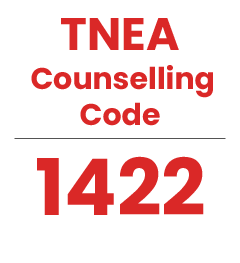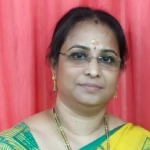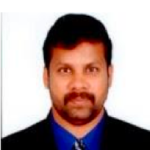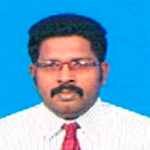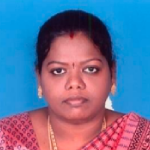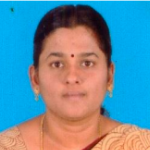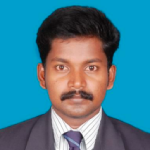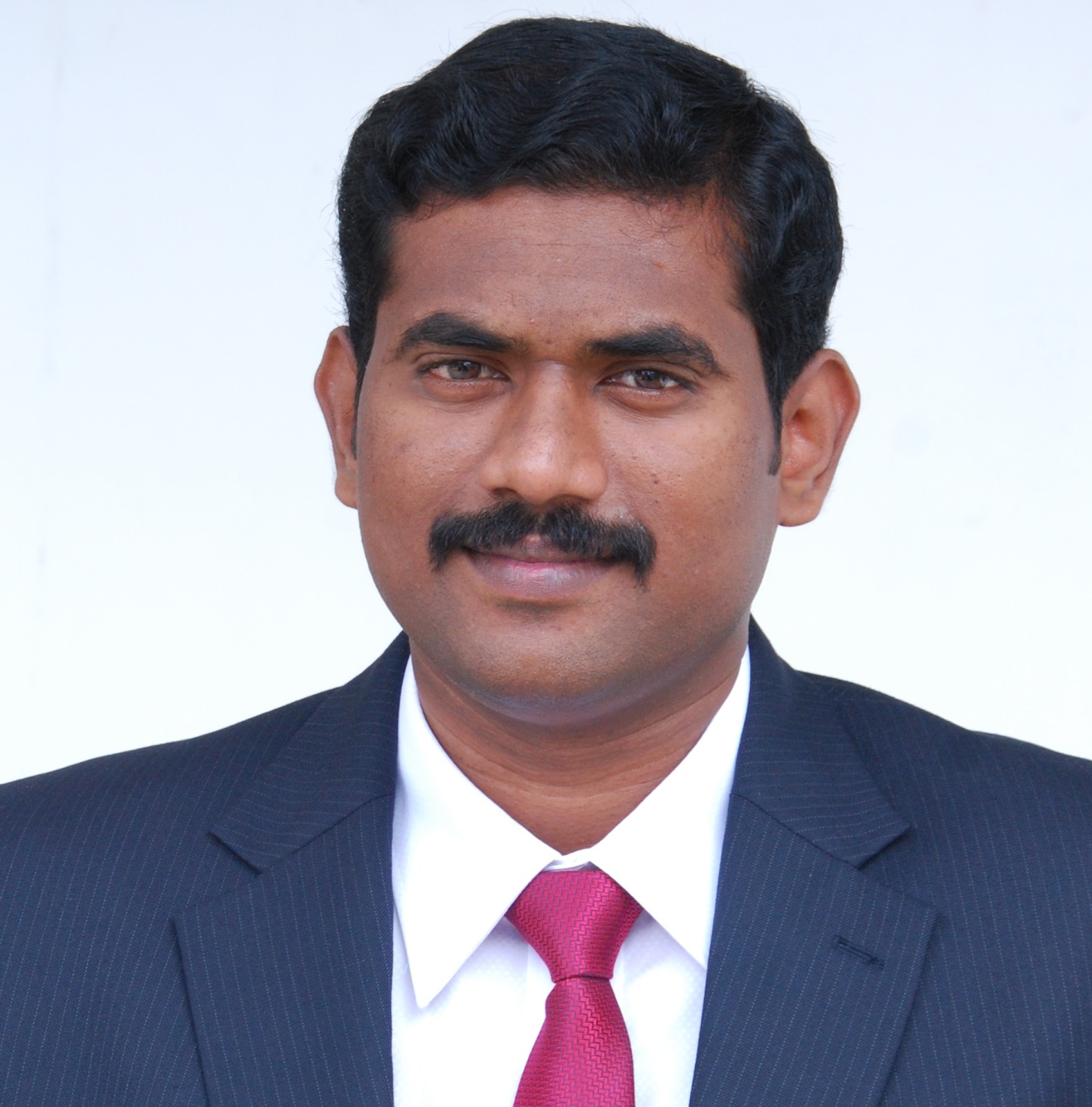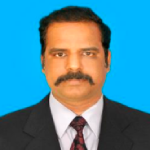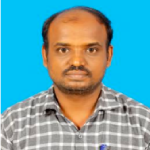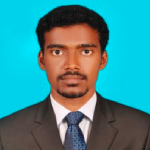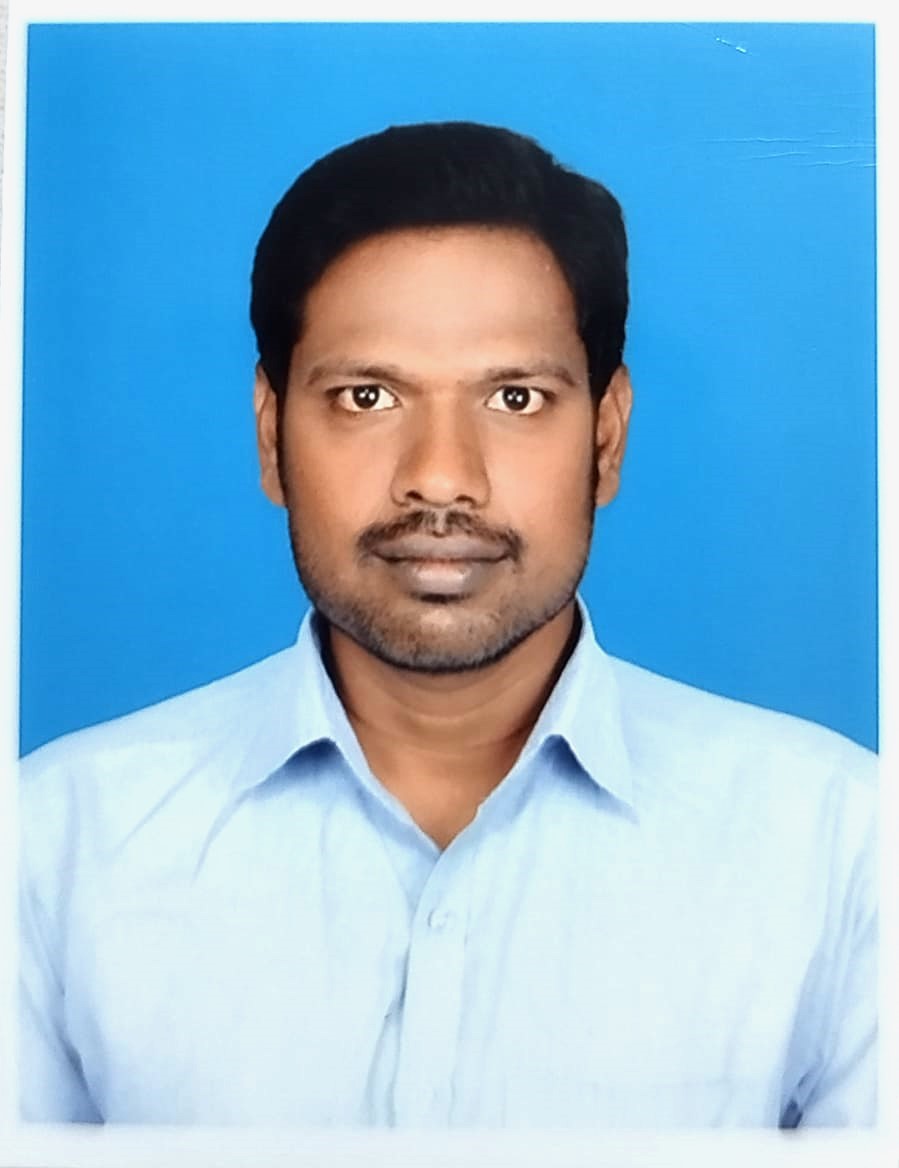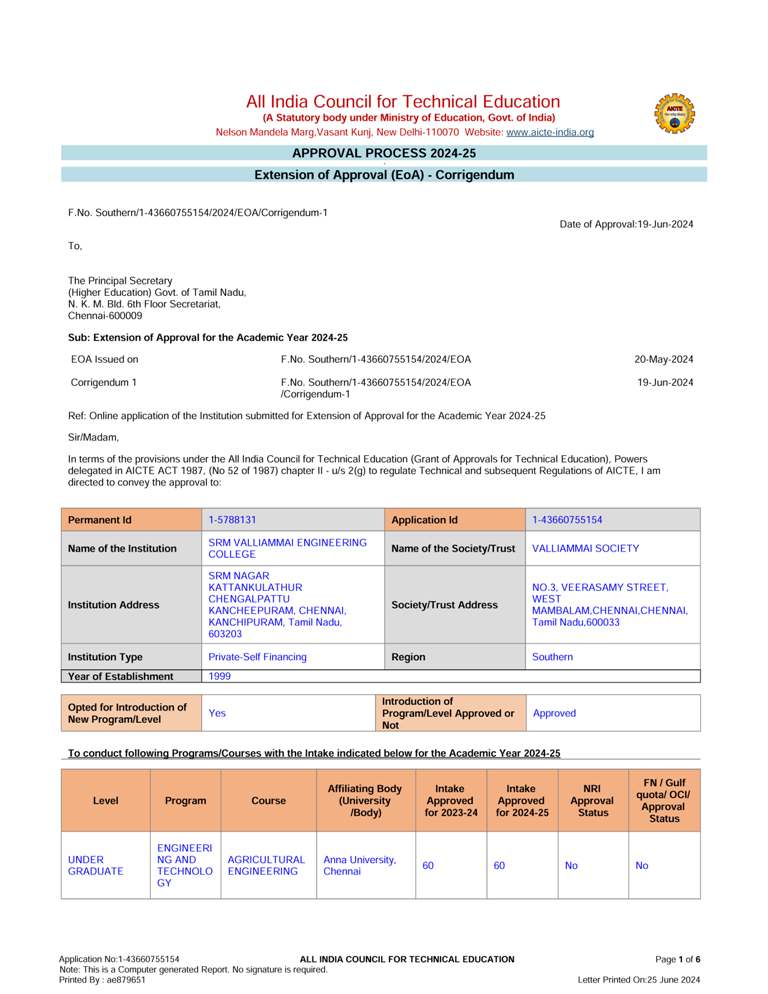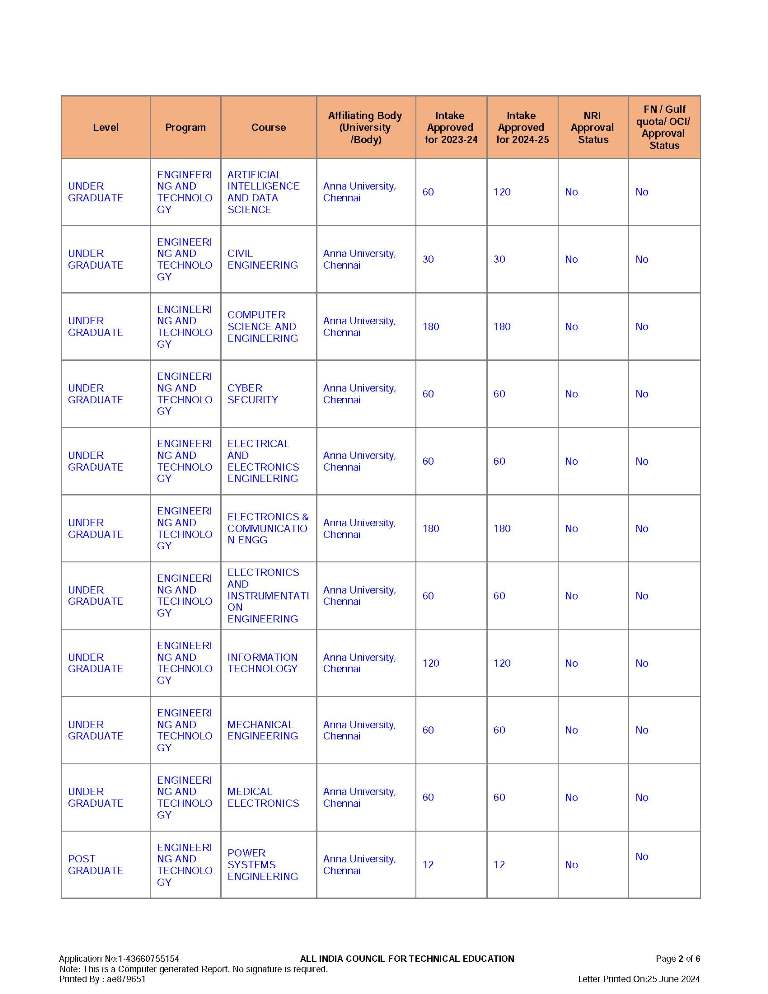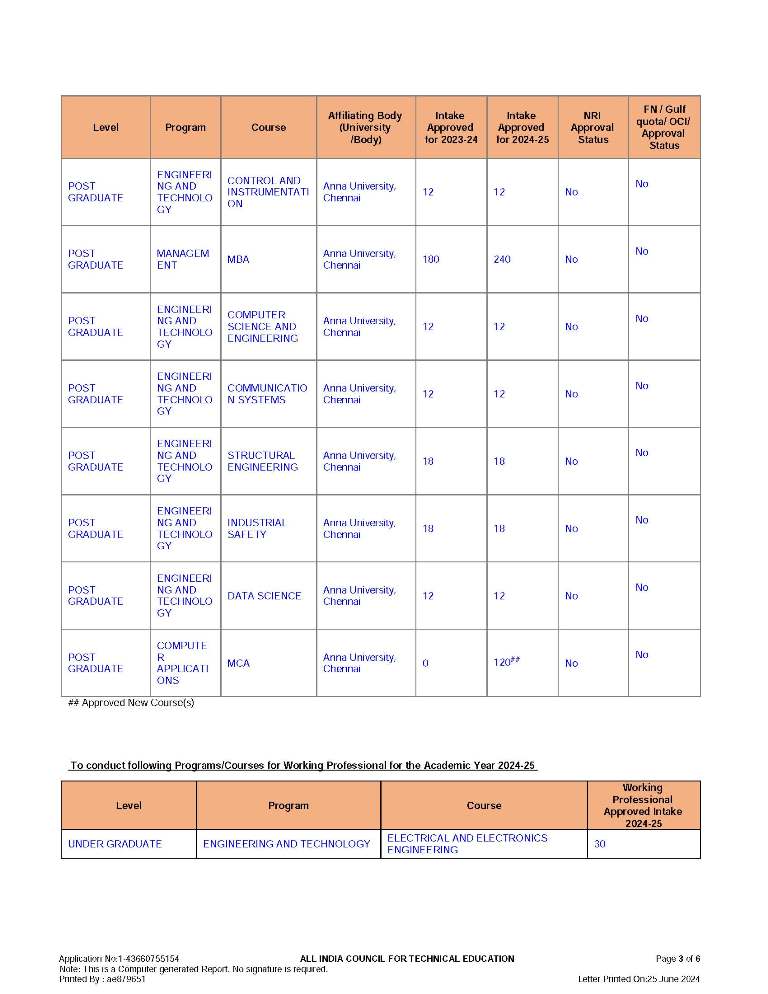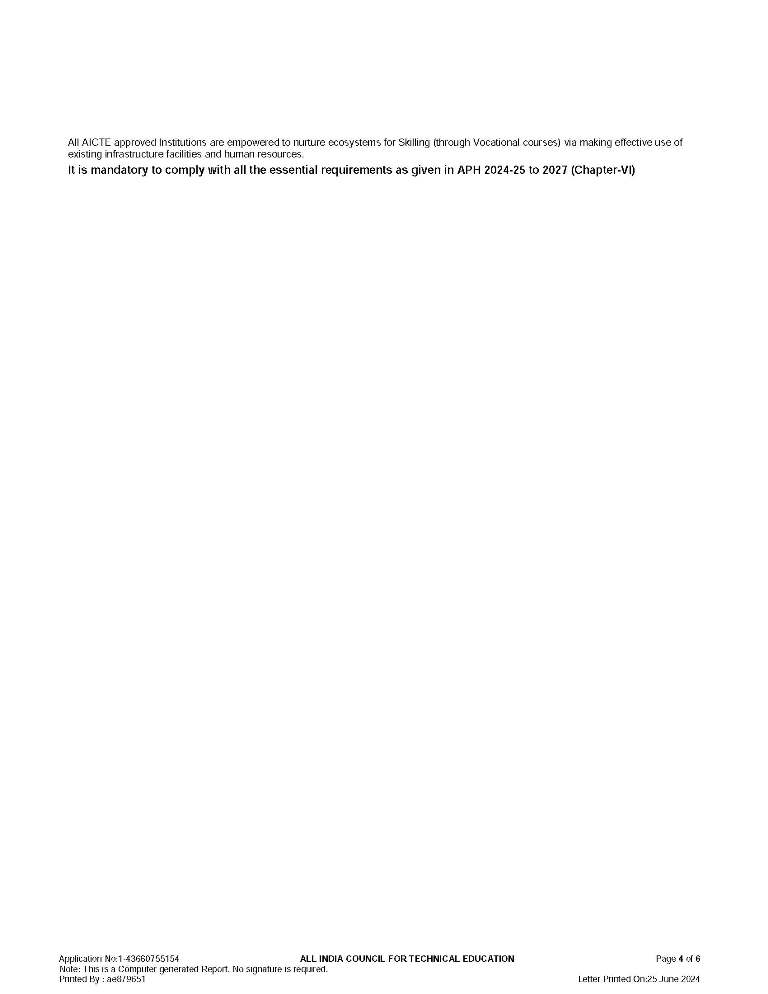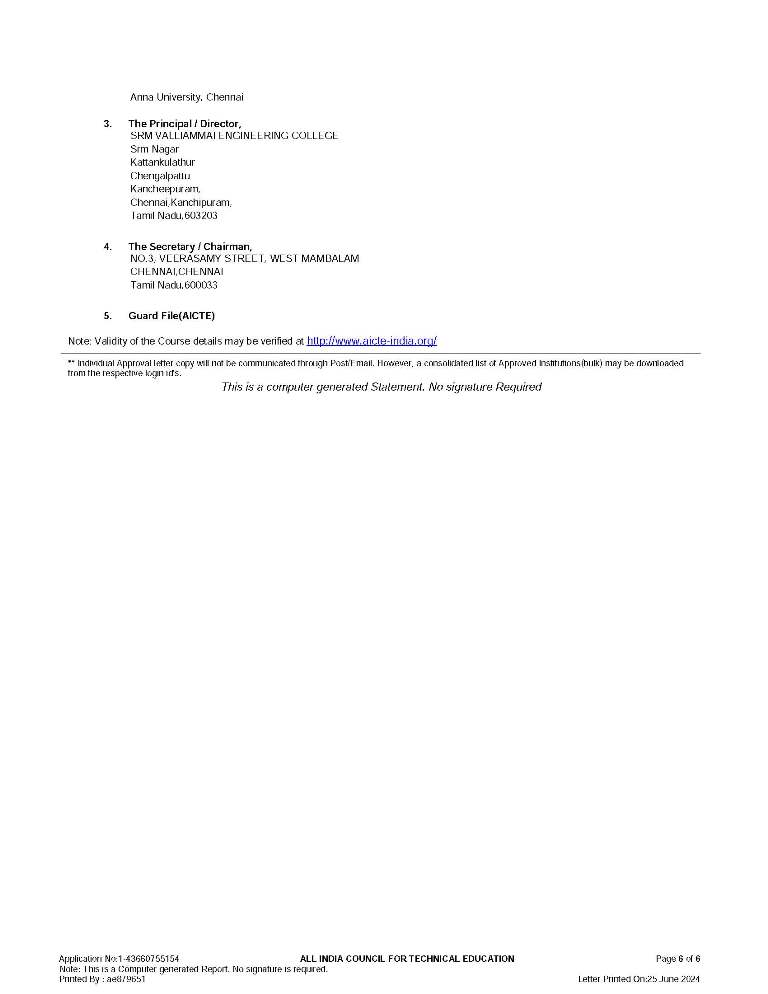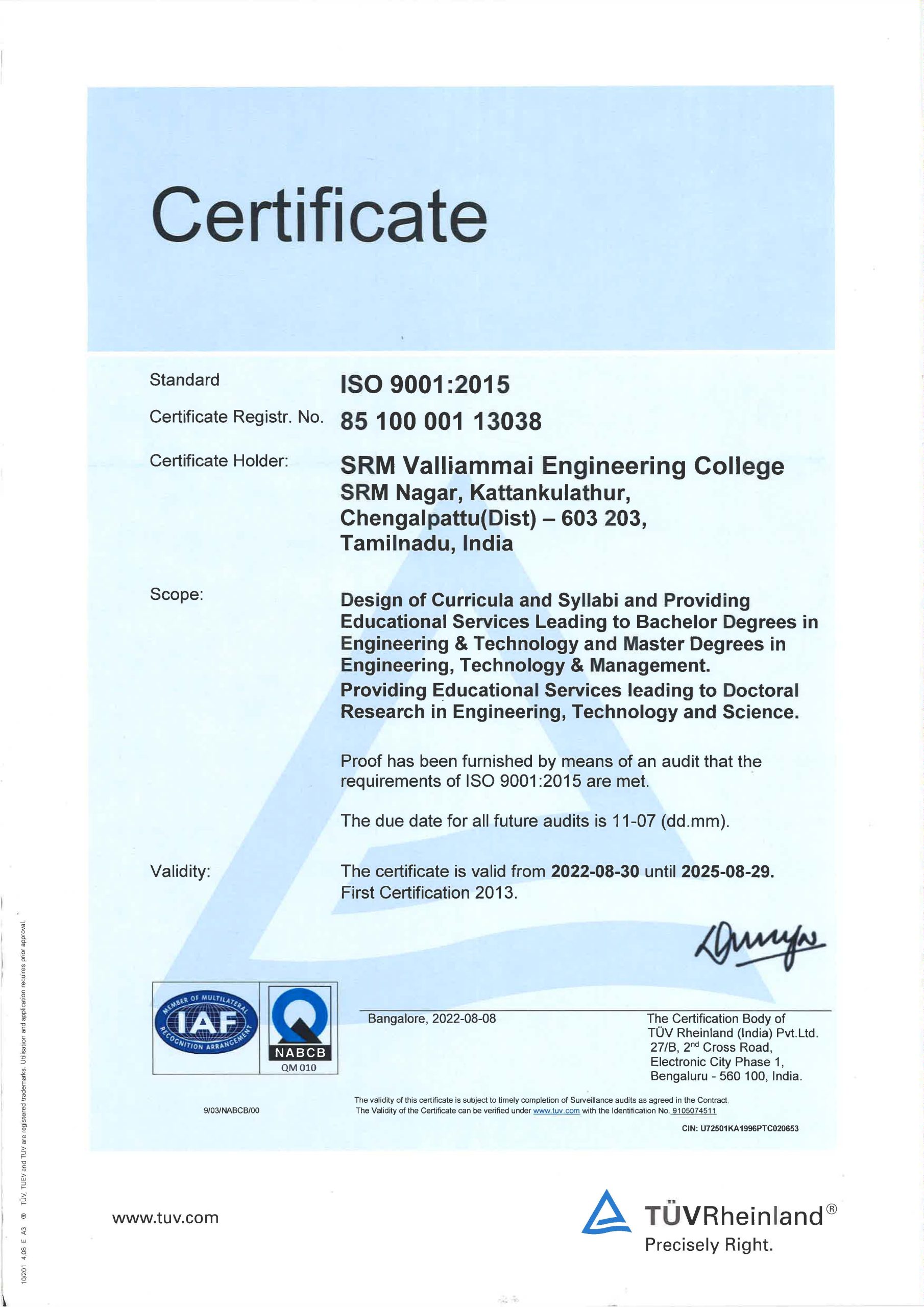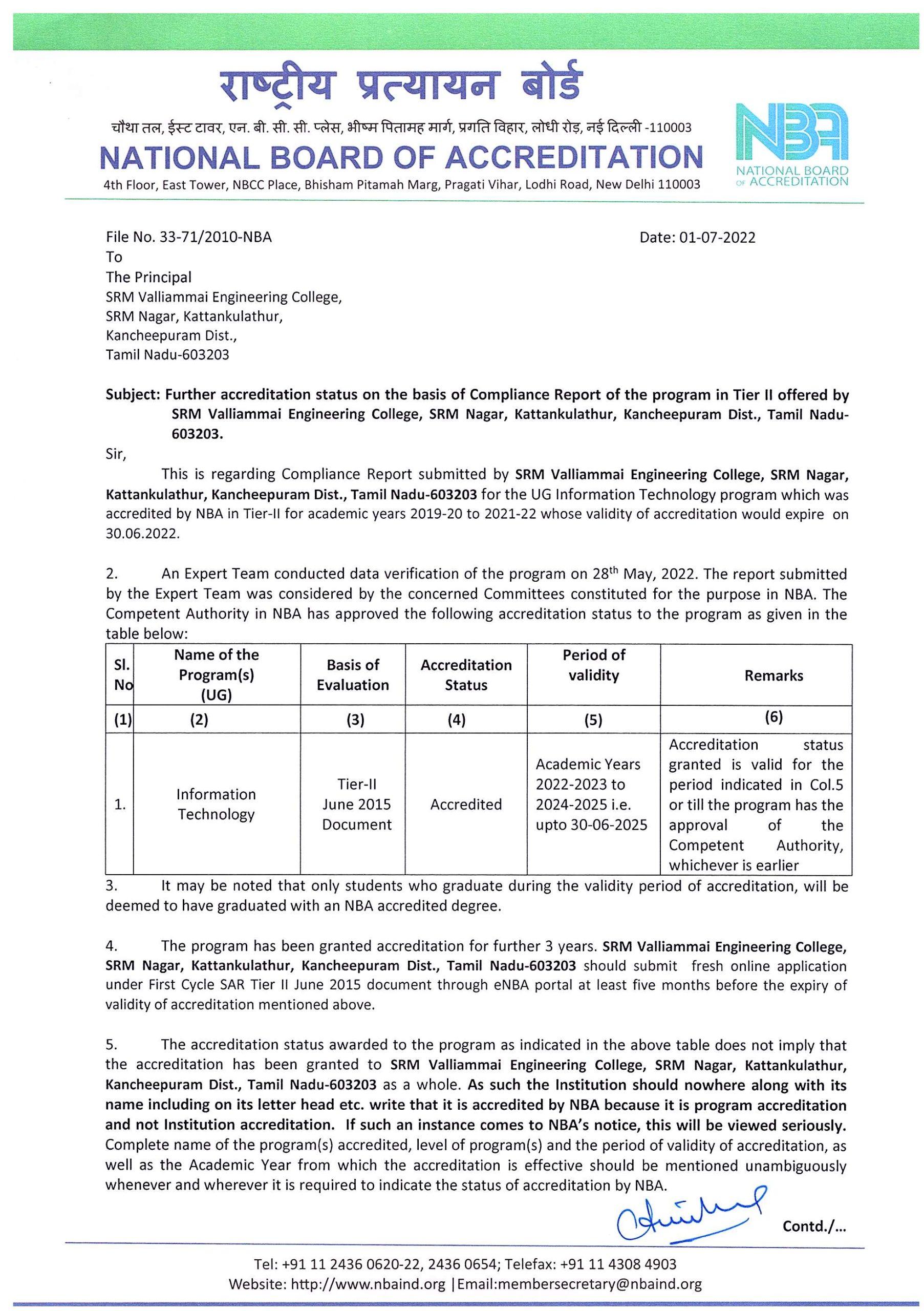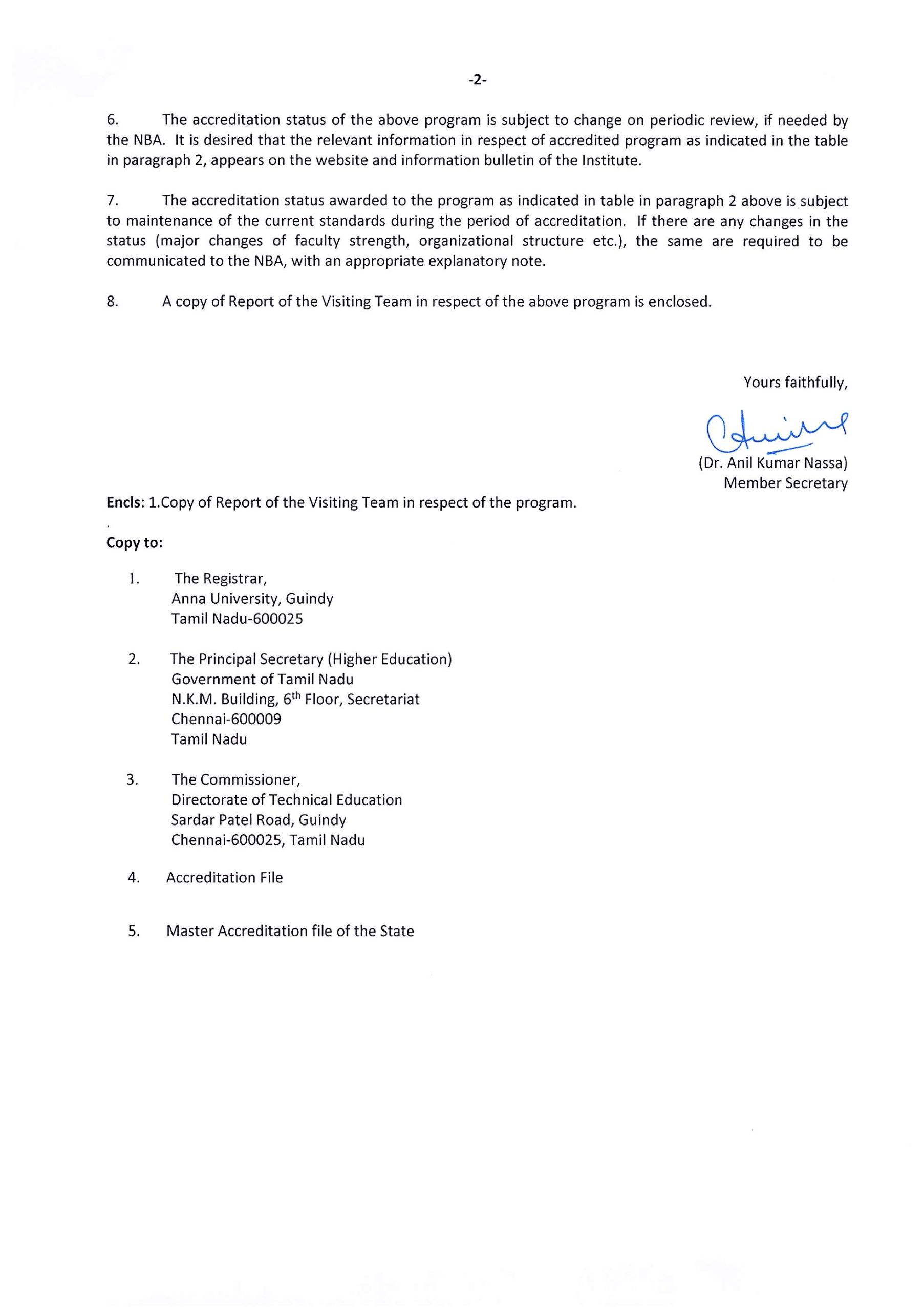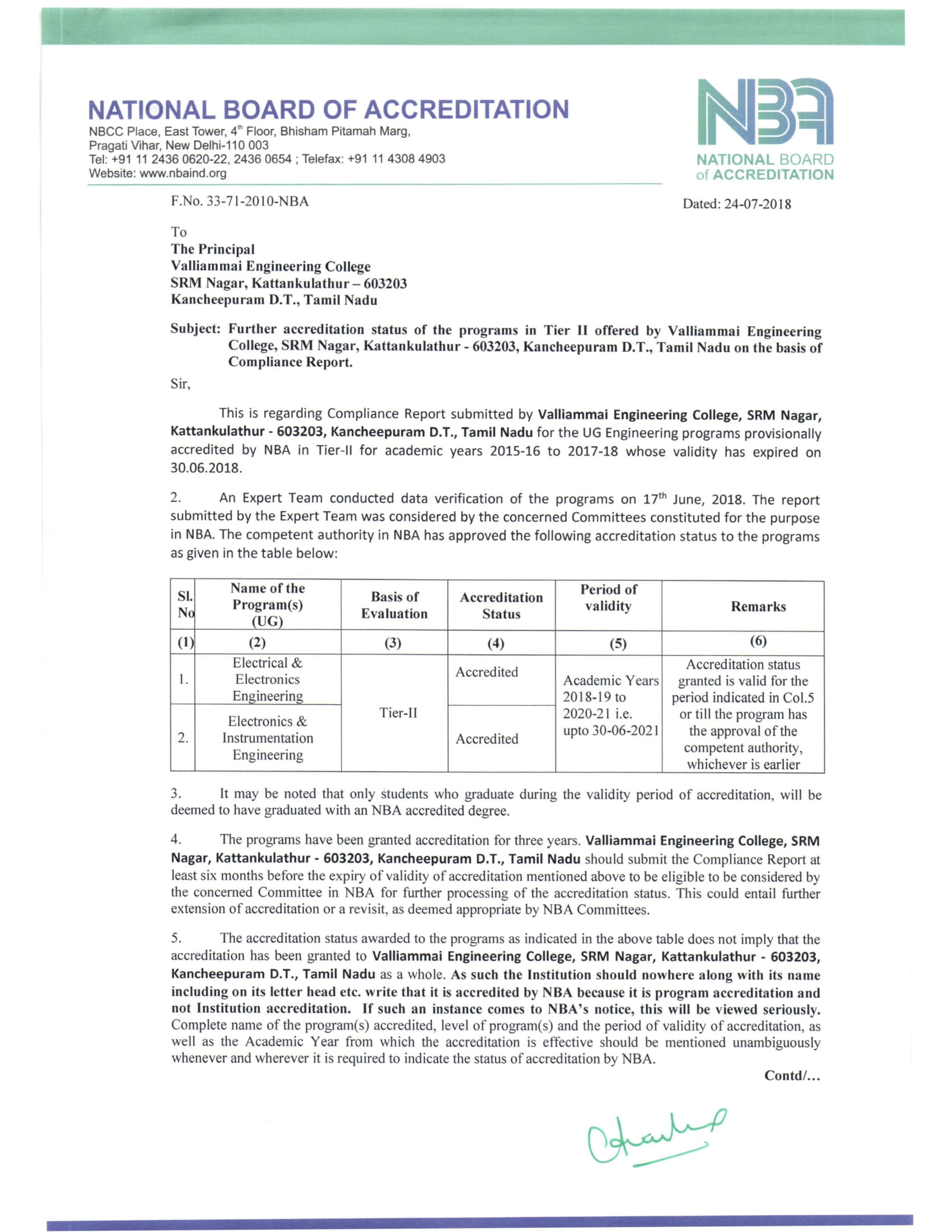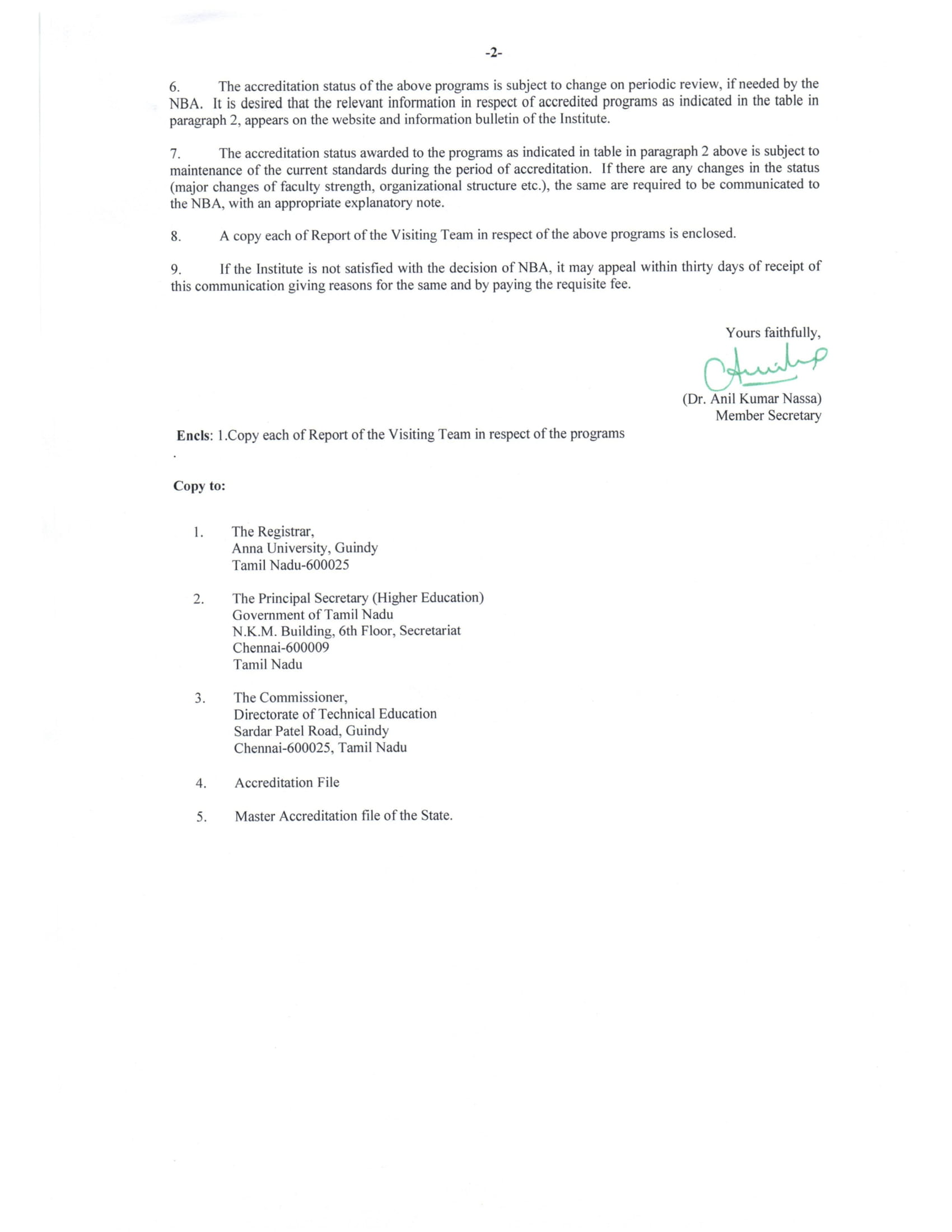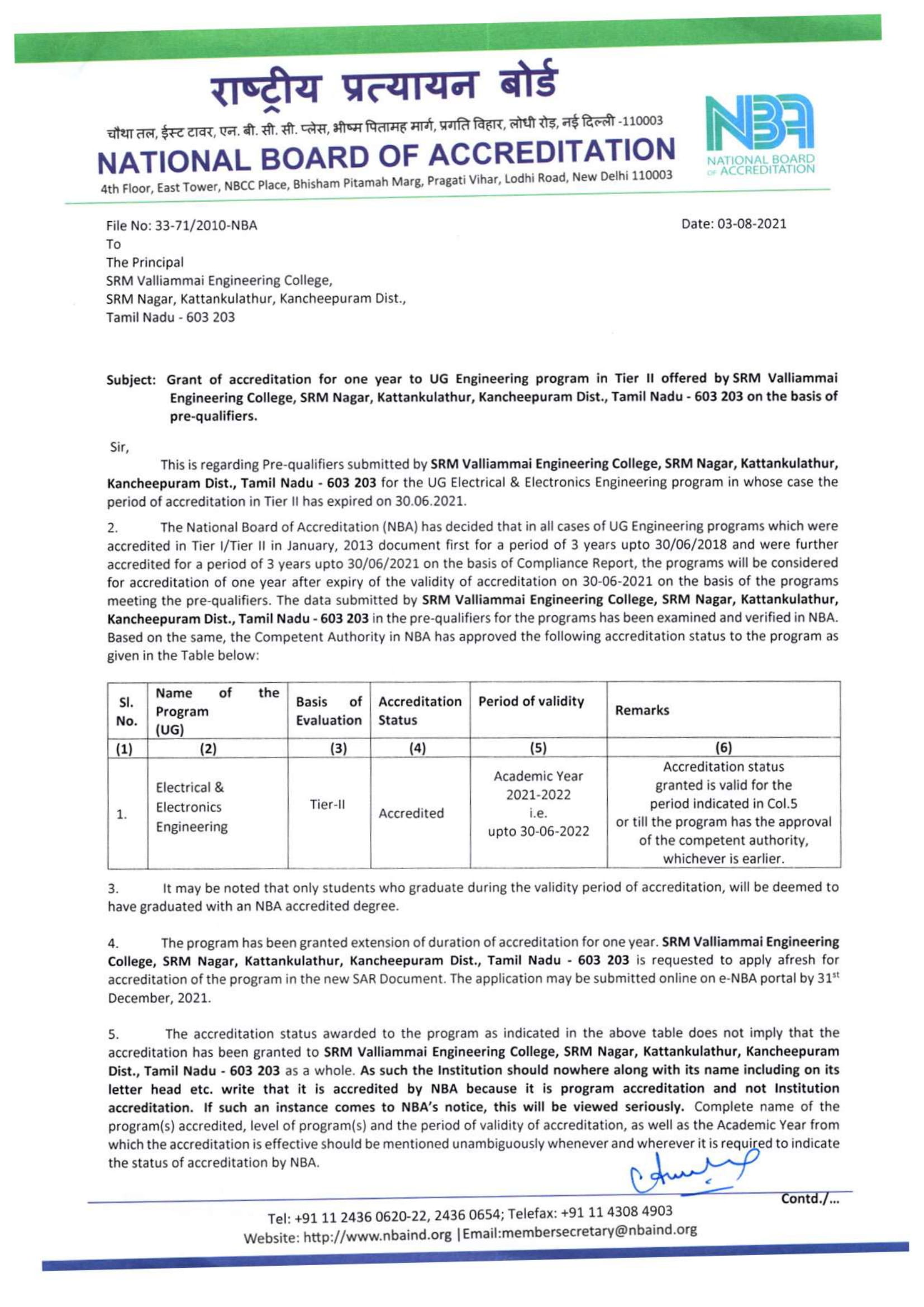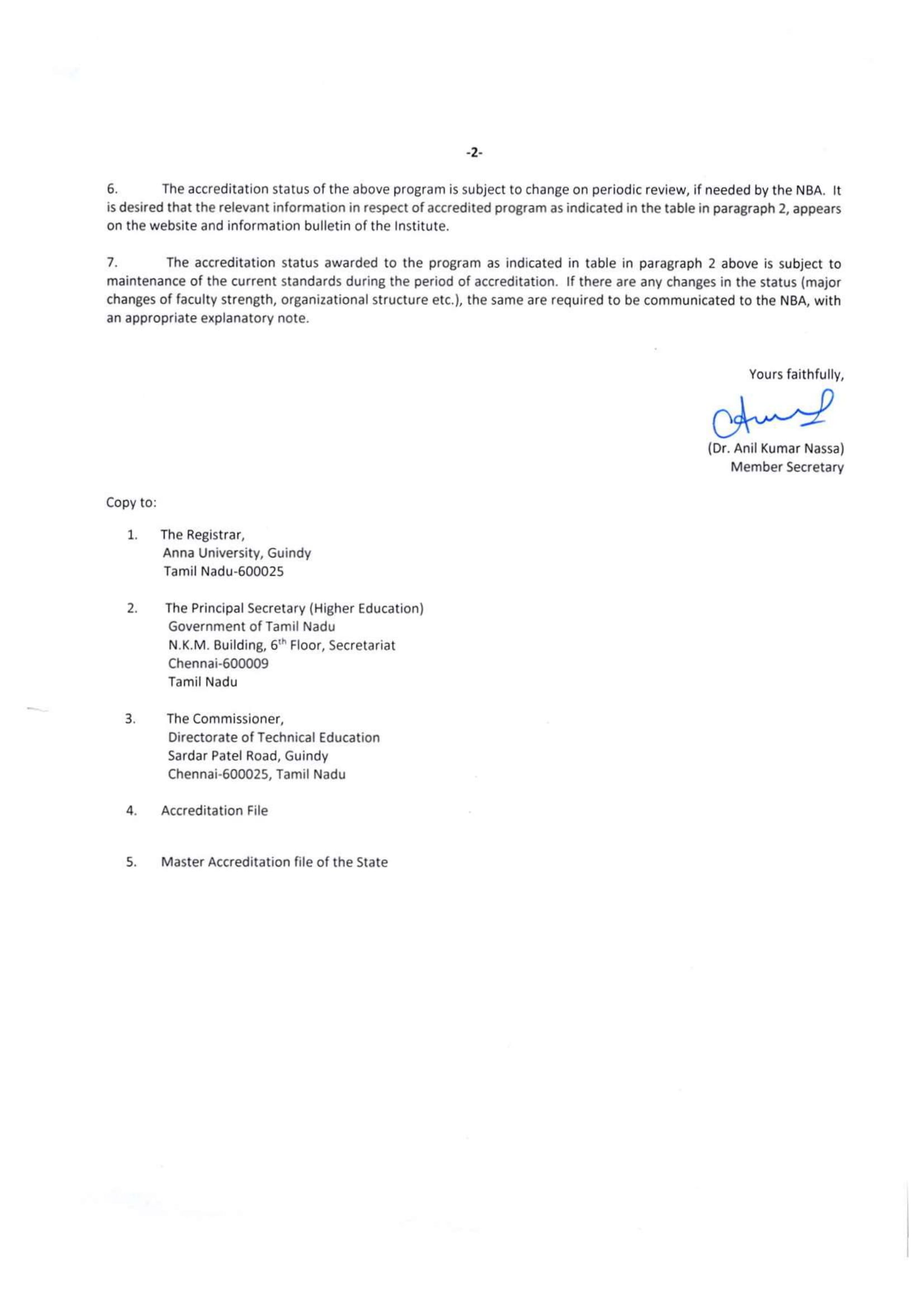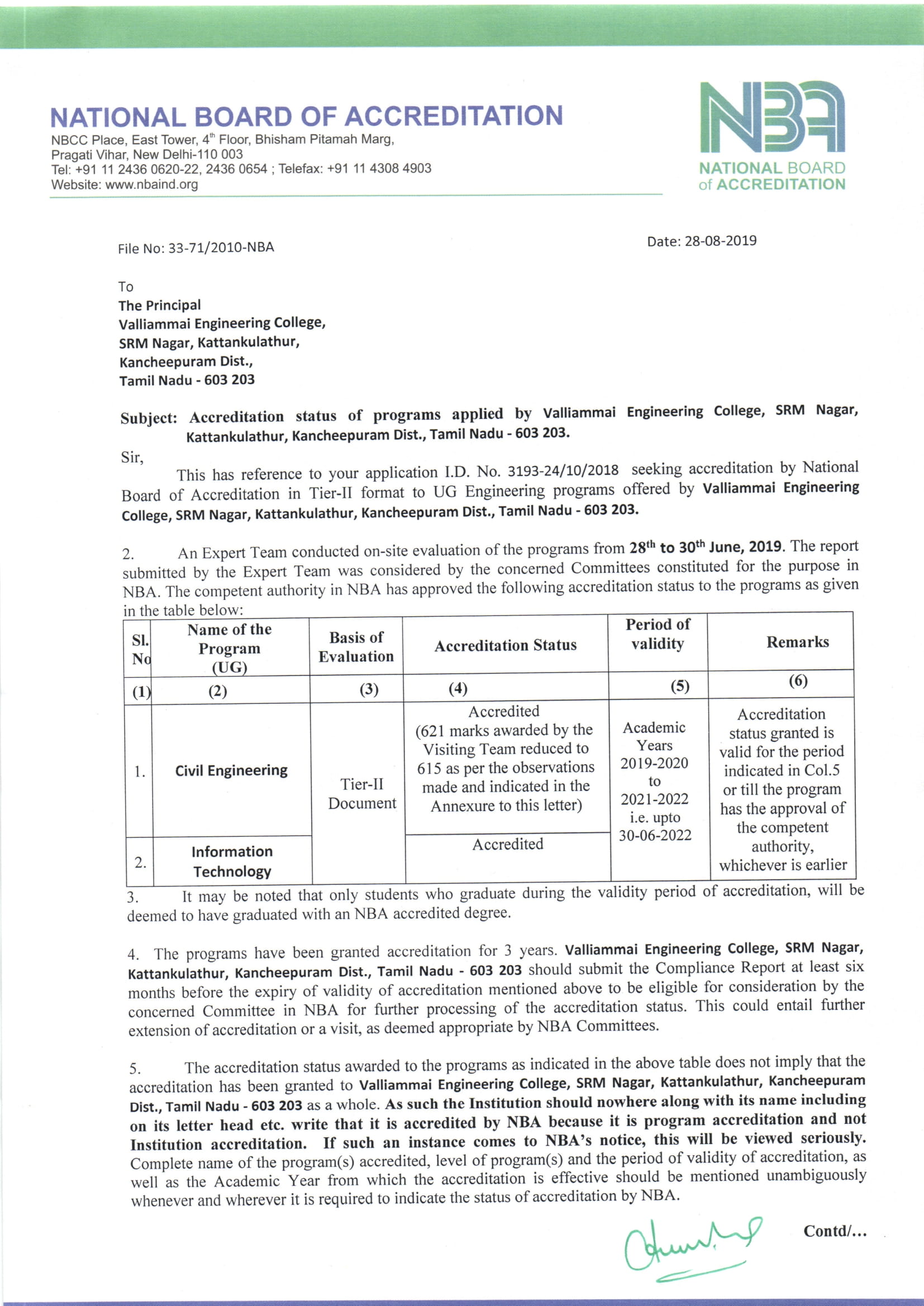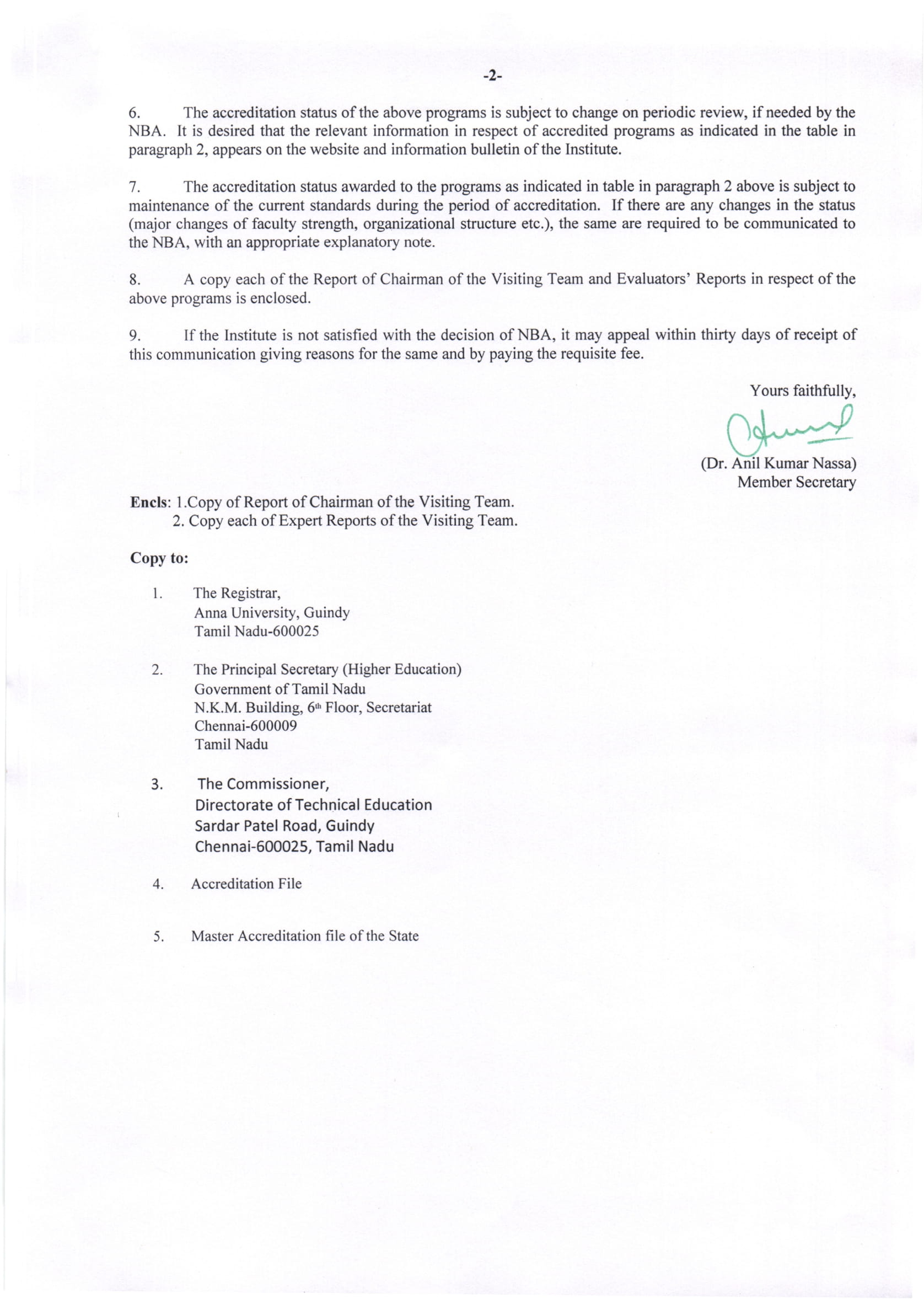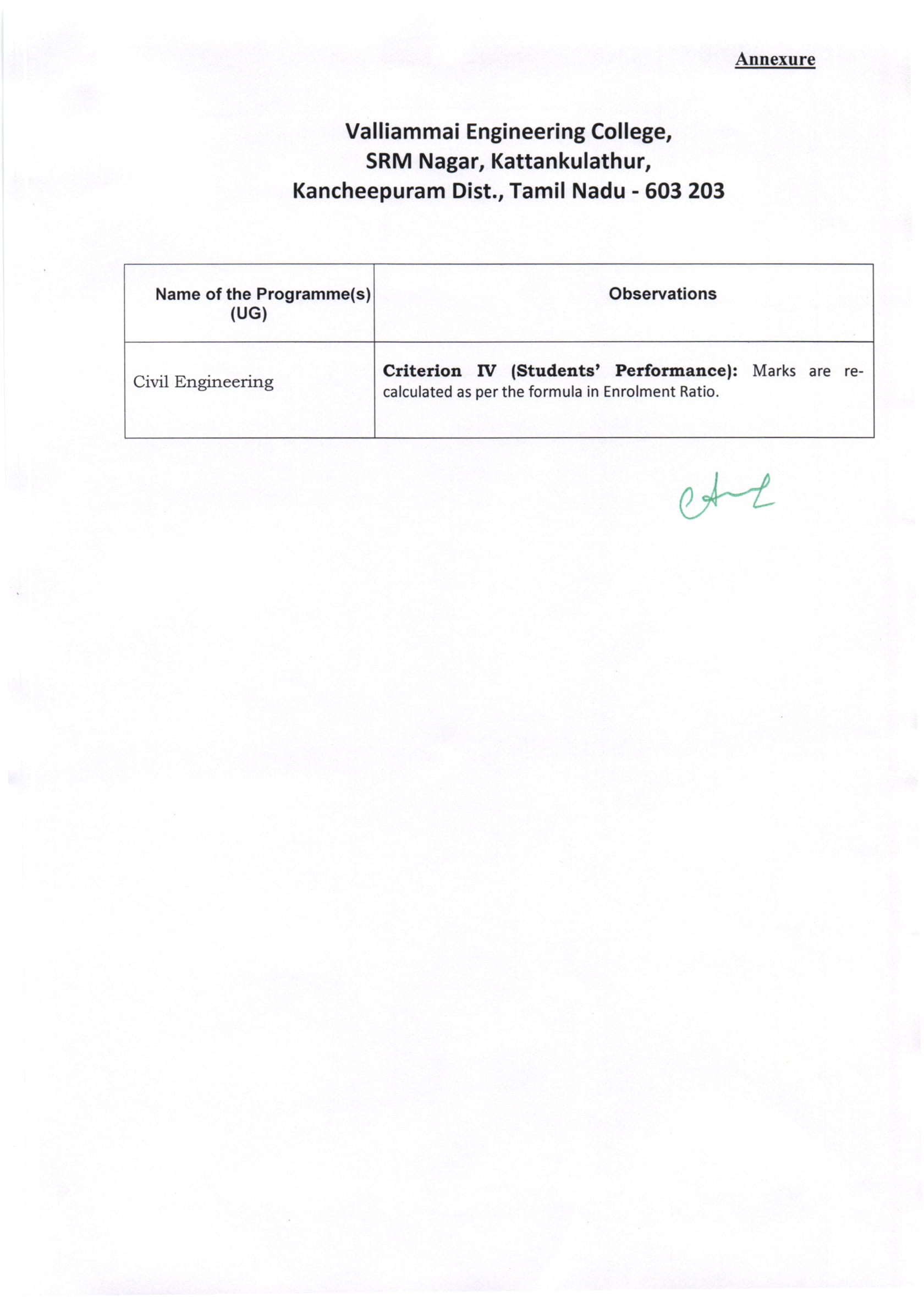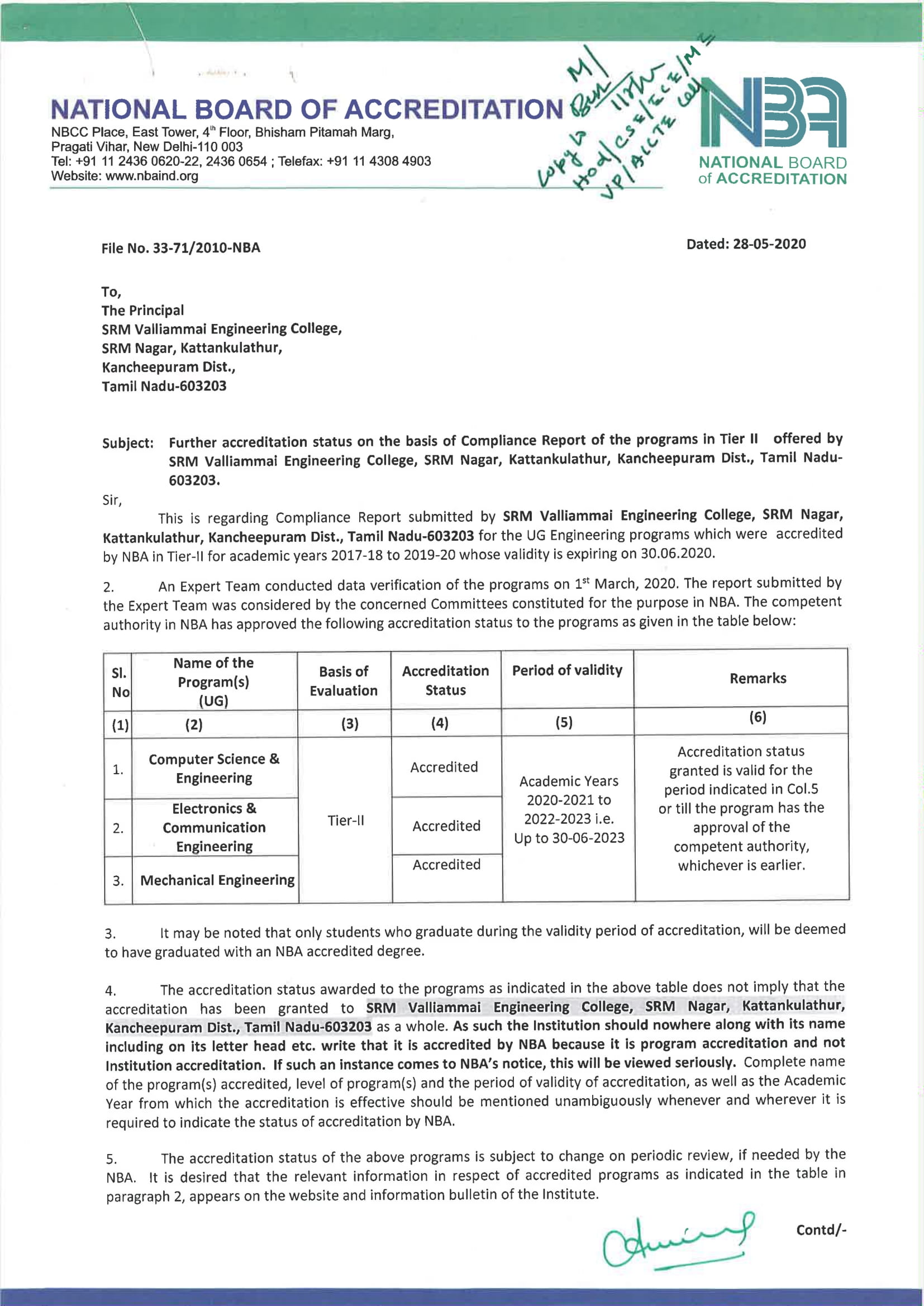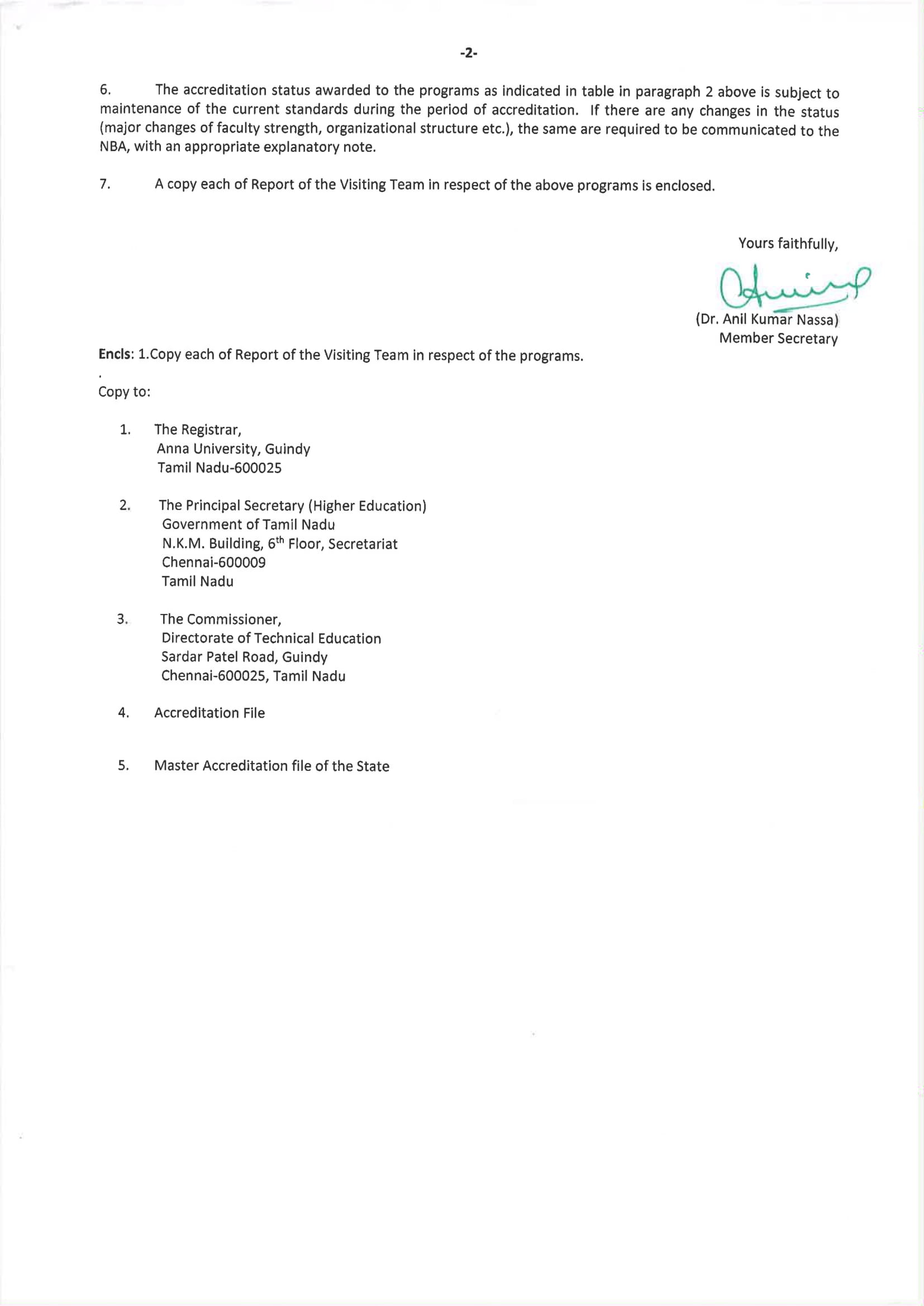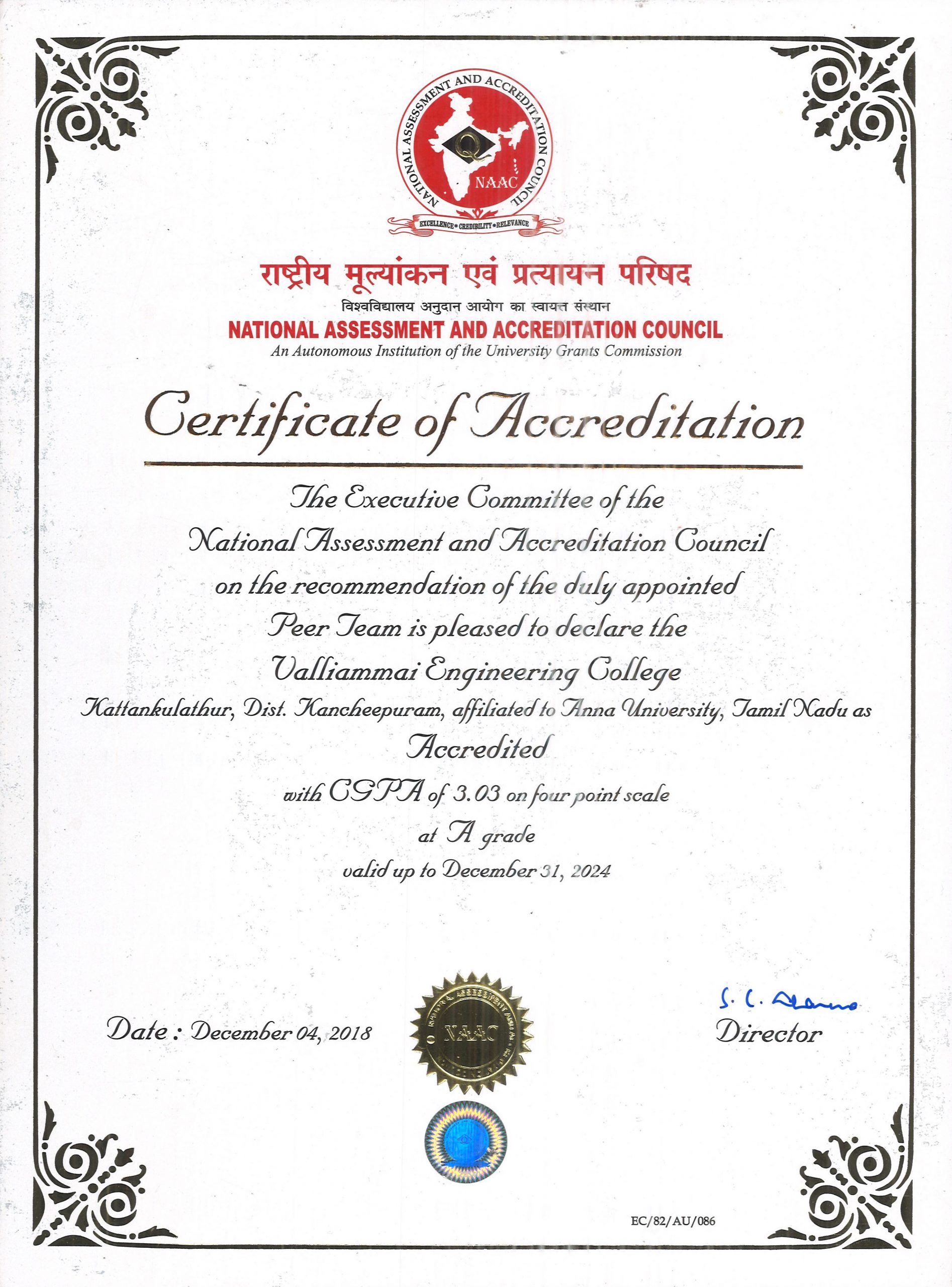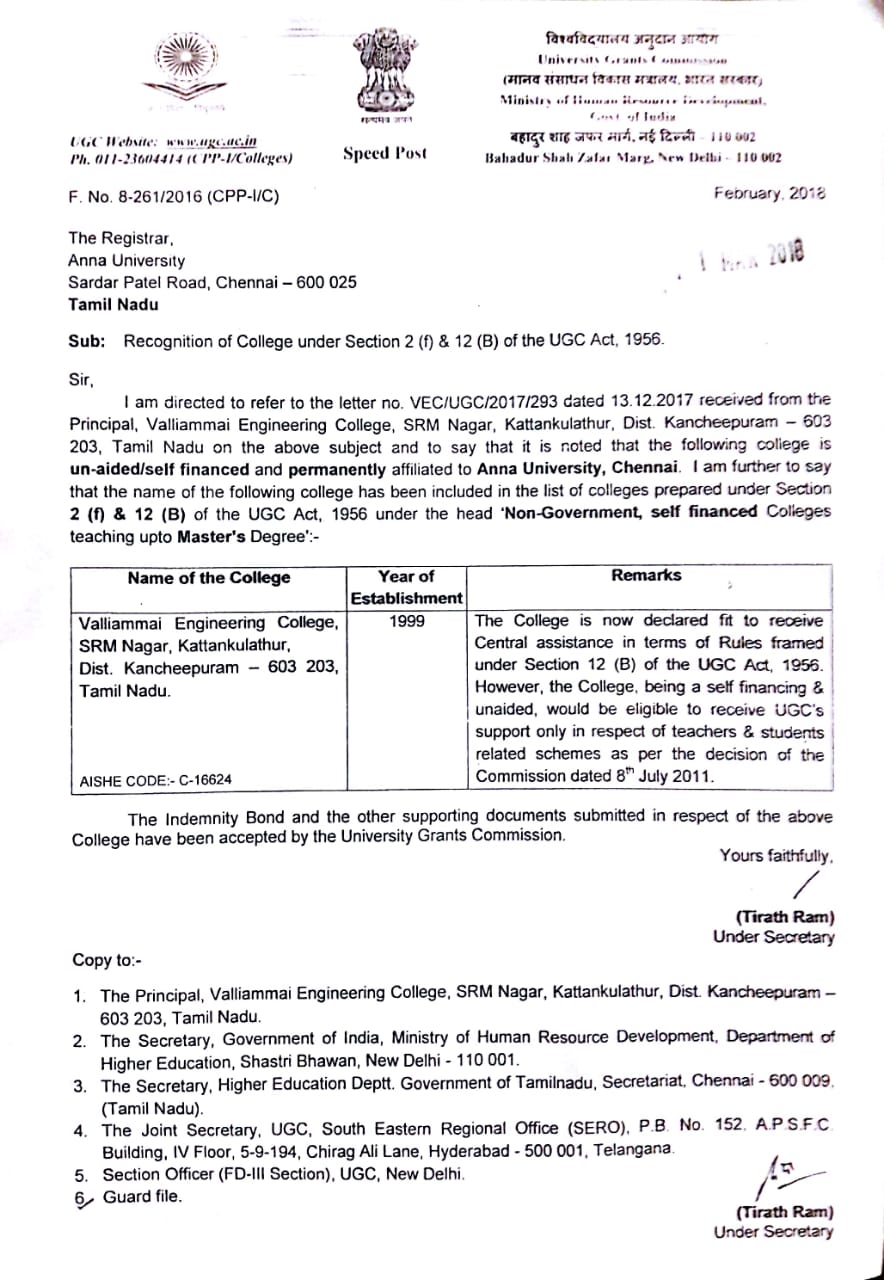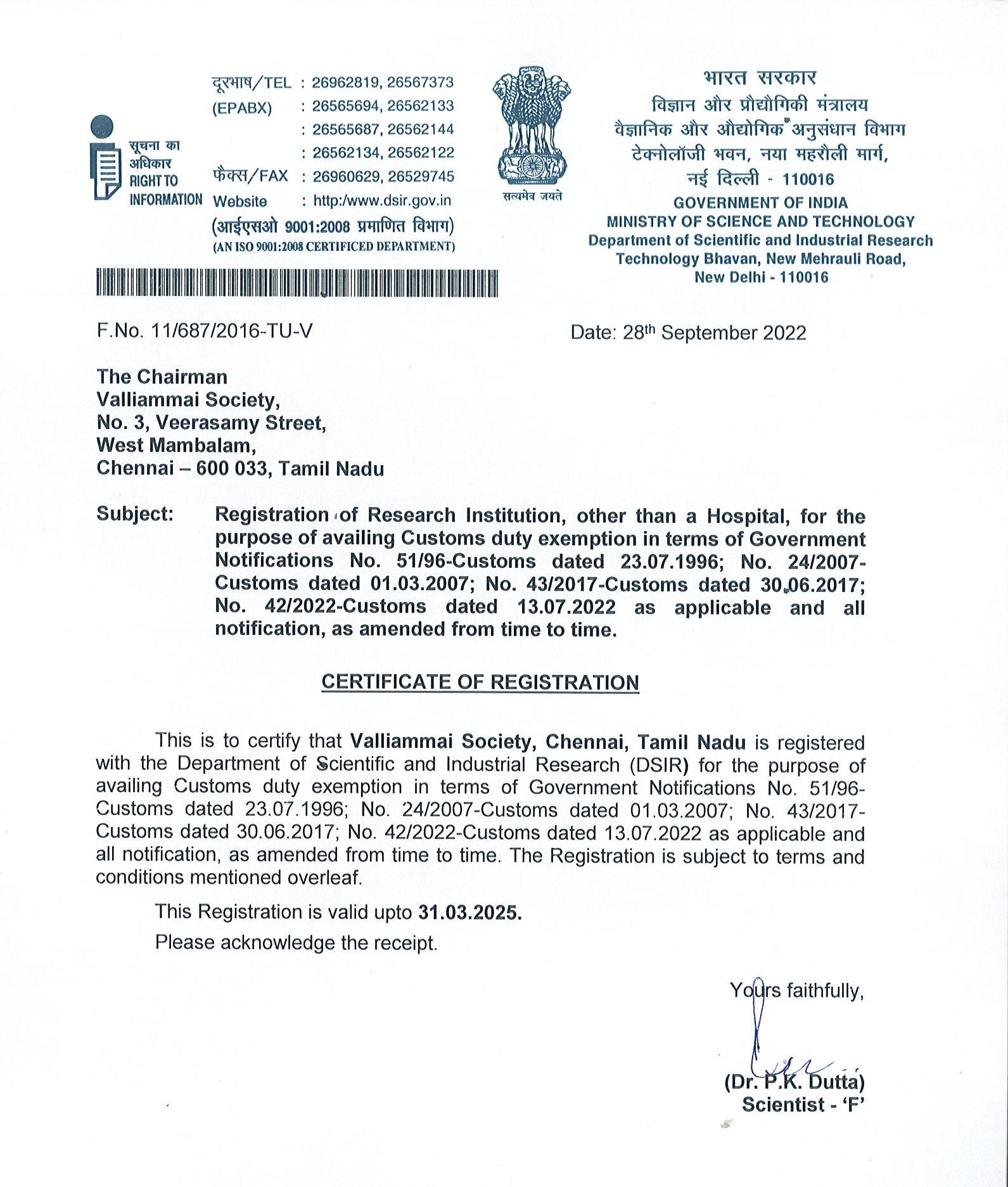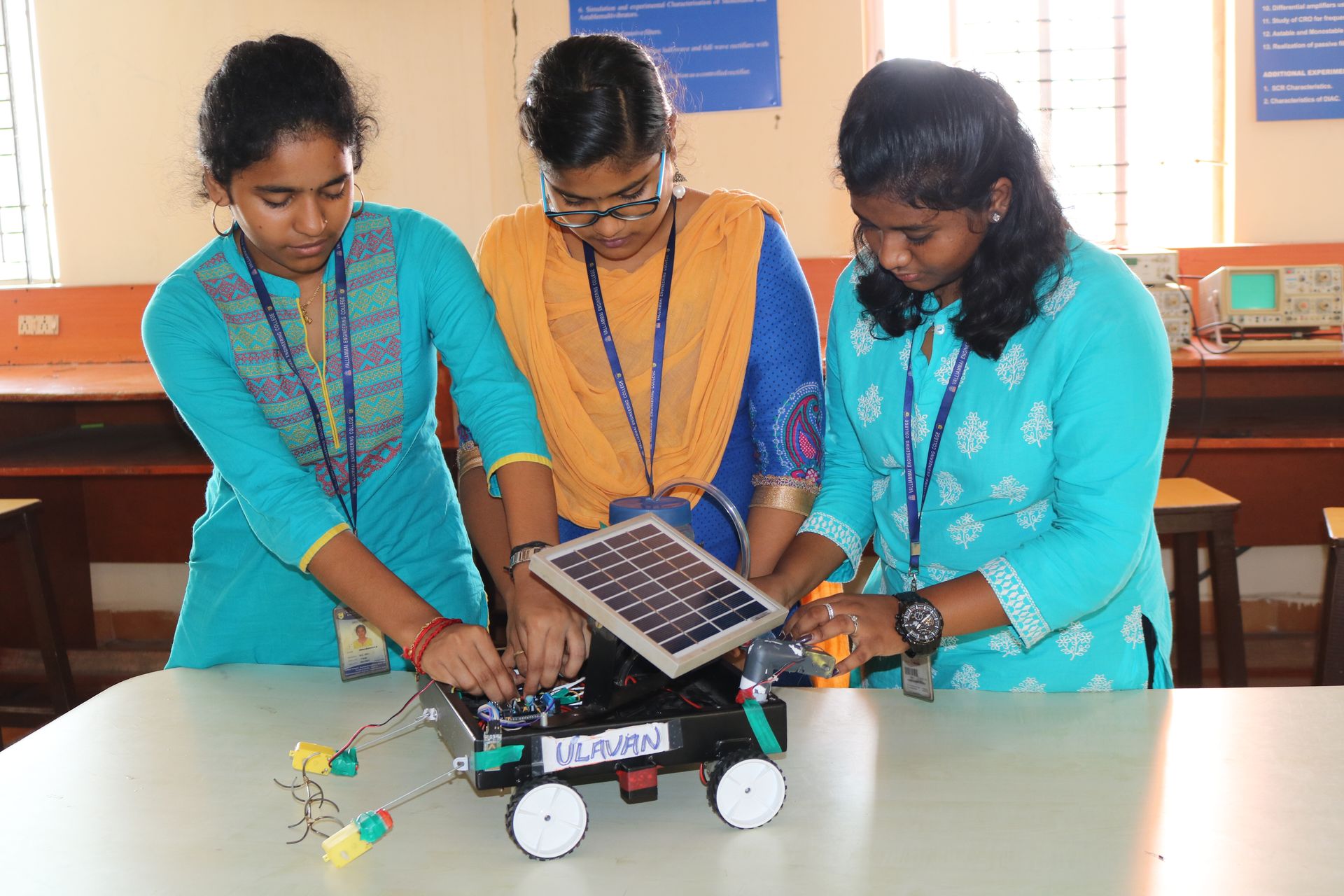
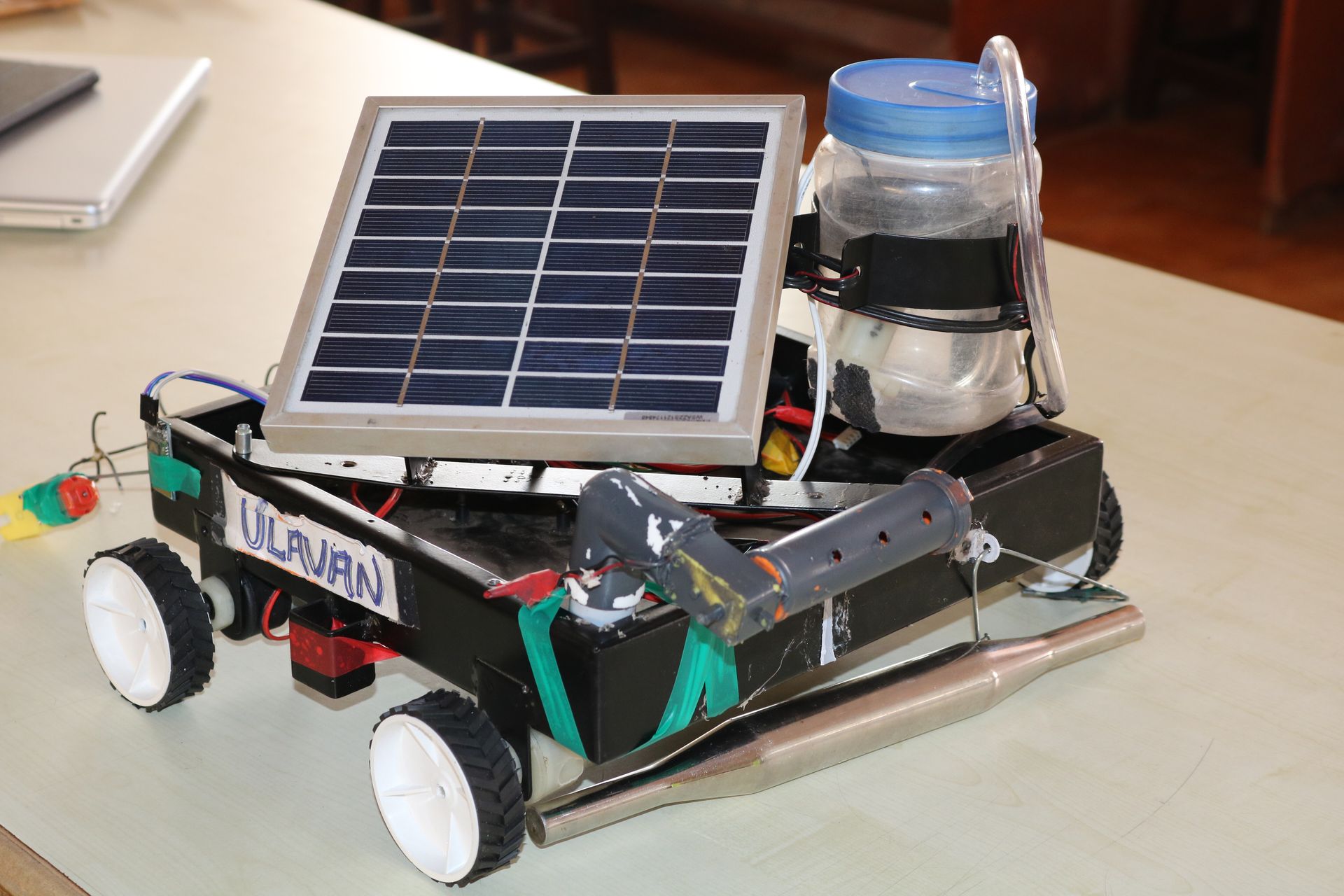
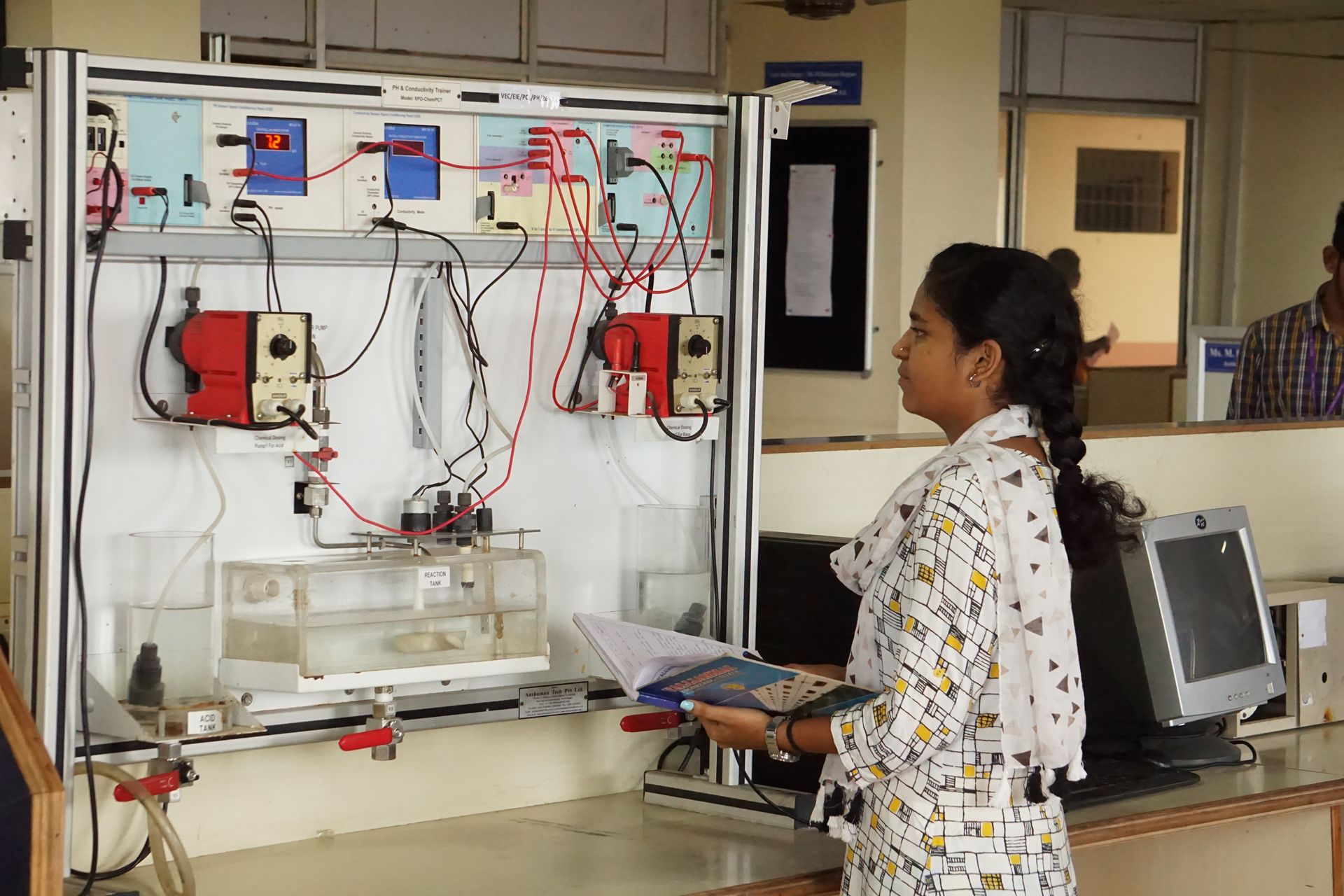
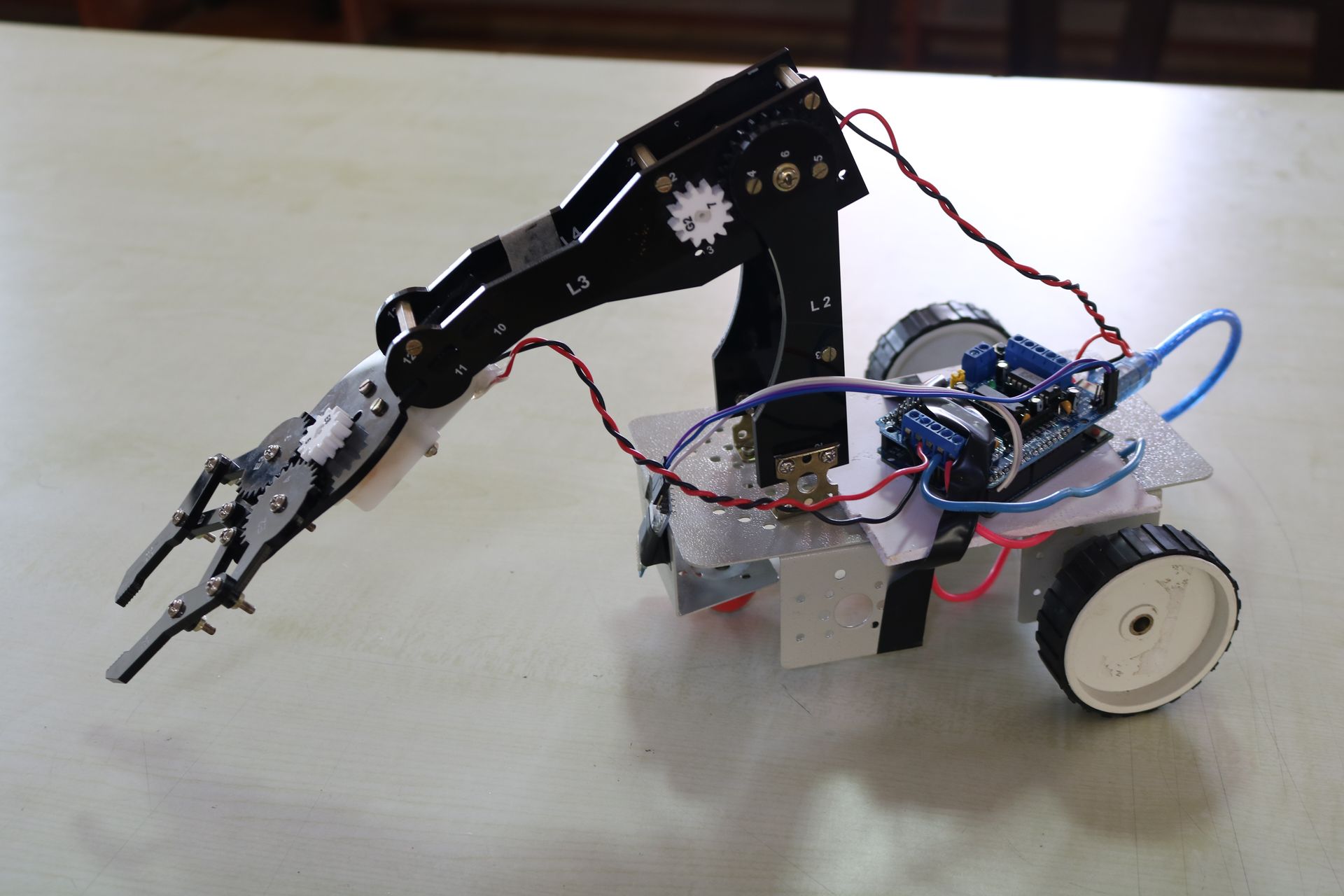
About the Department
The Department of Electronics and Instrumentation Engineering has been functioning since 2002, with a commitment to imparting quality education to undergraduate and postgraduate students in the field of Electronics and Instrumentation Engineering. The curriculum is designed in accordance with Anna University regulations and is periodically updated by the Board of Studies to keep pace with technological advancements.
The department is supported by a team of highly qualified and experienced faculty members who are actively engaged in both teaching and research across various domains of electronics and instrumentation. In addition to academic excellence, the faculty members have made significant contributions to the institution’s upgradation activities, including accreditations and quality initiatives such as NBA, NAAC, and ISO.
The department has received Permanent Affiliation Status from Anna University. The Electronics and Instrumentation Engineering (EIE) program was accredited by NBA, New Delhi, from 2015 to 2021.
The department has well-equipped laboratories to support practical learning, including:
- Electronic Circuits and Devices Lab
- Industrial Instrumentation Lab
- Measurements and Instrumentation Lab
- Virtual Instrumentation Lab
- Process Control Lab
- Transducer Lab
- Industrial Automation Lab
- Instrumentation System Design Lab
These labs are fully equipped to meet the requirements of Anna University’s curriculum. The department also has dedicated and efficient supporting staff to assist in academic and lab activities.
The Department has consistently achieved excellent results in both theory and practical university examinations. Currently, around five faculty members are pursuing their Ph.D. in the Faculty of Electrical Engineering. The faculty members are actively involved in the academic and personal growth of the students.
Each class is assigned a class coordinator who monitors students’ attendance, academic performance, and behavior. Student progress is regularly shared with parents. A mentoring system is followed with a ratio of 1 faculty member for every 15 students. Parents are invited for discussions when needed to support student development.
The department regularly organizes faculty development programs, workshops, and seminars. Faculty members are encouraged and fully supported to participate in events, present papers at national and international conferences, and attend workshops organized by reputed institutions.
Nearly 90% of graduating students are placed in leading companies such as TCS, Infosys, Accenture, HCL, L&T, IGATE, and Mahindra Satyam. Many students also pursue higher studies both in India and abroad.
The main objective of the institution and the department is to provide quality technical education and nurture skilled, responsible, and professional graduates.
The first-year curriculum builds a strong foundation in basic engineering and hands-on skills. As students progress, they gain specialized knowledge in Electronics and Instrumentation Engineering. Classroom learning is enriched with practical lab work, projects, and technical training. In addition to technical knowledge, students are also taught universal values and professional ethics.
The department maintains strong ties with industry to ensure effective placement and career growth for students. It has earned a good reputation through its academic excellence, successful placements, and active participation in symposia, workshops, and conferences.
The department has received the “Best Department Award” for achieving the highest pass percentage in the academic years 2007–08 and 2015–16. It also holds the record for the highest placement rate in the college.
Programmes run by the department are,
- B.E. – Electronics and Instrumentation Engineering (EIE)
- M.E. – Control and Instrumentation Engineering (C&I)
Recognitions and Achievements:
- The department is recognized as a Research Centre by Anna University, Chennai.
- The department received “The Teaching Awards in Engineering” presented by Education Matters and Staffordshire University, UK.
Highlights of the Department:
- Qualified Faculty: Highly qualified, experienced, and dedicated faculty members with multi-disciplinary expertise.
- Advanced Laboratories: Well-equipped labs with state-of-the-art facilities that support advanced research and hands-on learning.
- Centre of Excellence: A Robotics Laboratory has been established under the Centre of Excellence initiative.
- Calibration Laboratory: Sponsored by DST-FIST, supporting high-quality experimental learning.
- AICTE-MODROBS Funded Project: “Fieldbus and DCS Workstation” setup under AICTE-MODROBS with a sanctioned amount of ₹18,82,000.
Academic and Student Enrichment Activities:
- Weekly Placement Training and Tests to enhance employability.
- Weekly Internal Seminars conducted by faculty members to promote academic interaction and idea sharing.
- Organization of National Symposia, Seminars, Workshops, Special Lectures, Short-Term Courses, and Value-Added Courses every year.
- Industrial Visits arranged every semester to bridge theoretical knowledge with practical industry exposure.
Staff Particulars:
- Total Number of Teaching faculty: 13
- Total Number of Ph.D. holders : 8
- Total Number of staff pursuing Ph.D.: 5
- Number of Professors: 3
- Number of Asst. Professors: 10
- Number of Programmers: 02
Vision, Mission, PEO, PO, PSO
Vision:
To be a global leader in Electronics and Instrumentation Engineering, driving innovation, excellence, and societal impact through interdisciplinary collaboration and cutting-edge research.
Mission:
| M1 | : | To lead in academic excellence by providing top-tier technical education in the field of electronics and instrumentation engineering. |
| M2 | : | To inspire students to cultivate innovation, competence, efficiency, and a strong sense of values. |
| M3 | : | To provide students with enhanced exposure to the latest developments in the field. |
| M4 | : | To enable students to engage with technological progress and play an active role in fostering a more prosperous society. |
Programme Outcomes (PO’s) :
- PO1: Engineering knowledge: Apply the knowledge of mathematics, science, engineering fundamentals, and an engineering specialization to the solution of complex engineering problems.
- PO2: Problem analysis: Identify, formulate, review research literature, and analyze complex engineering problems reaching substantiated conclusions using first principles of mathematics, natural sciences, and engineering sciences.
- PO3: Design/development of solutions: Design solutions for complex engineering problems and design system components or processes that meet the specified needs with appropriate consideration for the public health and safety, and the cultural, societal, and environmental considerations.
- PO4: Conduct investigations of complex problems: Use research-based knowledge and research methods including design of experiments, analysis and interpretation of data, and synthesis of the information to provide valid conclusions.
- PO5: Modern tool usage: Create, select, and apply appropriate techniques, resources, and modern engineering and IT tools including prediction and modeling to complex engineering activities with an understanding of the limitations.
- PO6: The engineer and society: Apply reasoning informed by the contextual knowledge to assess societal, health, safety, legal and cultural issues and the consequent responsibilities relevant to the professional engineering practice.
- PO7: Environment and sustainability: Understand the impact of the professional engineering solutions in societal and environmental contexts, and demonstrate the knowledge of, and need for sustainable development.
- PO8: Ethics: Apply ethical principles and commit to professional ethics and responsibilities and norms of the engineering practice.
- PO9: Individual and team work: Function effectively as an individual, and as a member or leader in diverse teams, and in multidisciplinary settings.
- PO10: Communication: Communicate effectively on complex engineering activities with the engineering community and with society at large, such as, being able to comprehend and write effective reports and design documentation, make effective presentations, and give and receive clear instructions.
- PO11: Project management and finance: Demonstrate knowledge and understanding of the engineering and management principles and apply these to one’s own work, as a member and leader in a team, to manage projects and in multidisciplinary environments.
- PO12: Life-long learning: Recognize the need for, and have the preparation and ability to engage in independent and life-long learning in the broadest context of technological change.
Program Specific Outcomes (PSO’s) :
PSO1: Ability to apply the acquired knowledge of basic skills, mathematical foundations, and principles of electronics and instrumentation, modeling and design of electronics and instrumentation based systems in solving engineering Problems.
PSO2: Ability to understand and analyse the interdisciplinary problems for developing innovative sustained solutions with environmental concerns.
PSO3: Ability to update knowledge continuously in the tools like MATLAB, Keil, Proteus, LabVIEW, PLC, SCADA, XILINIX and technologies like Industrial Instrumentation, Robotics, Automation Systems, VLSI, Embedded systems, Distributed control systems to meet the industry requirements.
PSO4: Ability to apply research based knowledge to design and conduct experiments, analyse, synthesize and interpret the data pertaining to Electronics and instrumentation Engineering problems and arrive at valid conclusions.
Programme Educational Objectives (PEO’s) :
I. Professional Knowledge
Graduates will have the knowledge of mathematics, science, computing and engineering fundamentals, laboratory and project based experiences breadth and in-depth studies to formulate and solve engineering problems in Electronics , Instrumentation, Control and Automation Engineering and shall have proficiency in computer based engineering and use of modern computational tools.
II. Professional Employment
Graduates will succeed in entry-level engineering positions with Electronics, Instrumentation, Automation and Computational or Manufacturing firms in regional, national, or international industries and with government agencies.
III. Professional Studies
Graduates will succeed in the pursuit of advanced degrees in engineering or other fields and will have skills for, continued independent, life-long learning to become experts in their profession and to broaden their professional knowledge.
IV. Professional Citizenship
Graduates will have the ability to organize and present information, to write and speak effective English, to work effectively on team-based engineering projects and will practice Ethics and have a sense of social responsibility.
V. Professional Practice
Graduates will have the ability to develop their engineering design, problem-solving skills and aptitude for innovation as they work on multi-disciplinary teams, to develop the basic skills needed to perform and design experimental projects.
Professor & Vice-Principal
Dr. S. Visalakshi M.E., Ph.D.,
Professor & Vice-Principal
Faculty
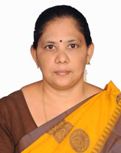
Dr. M. Banu Sundareswari M.E., Ph.D.,
Assistant Professor (Sel. Grade)
Mr. P. Tamilmani M.E., (Ph.D.)
Assistant Professor (Sel. Grade)
Mrs. K.S. Jaibhavani M.Tech., (Ph.D.)
Assistant Professor (Sel. Grade)
Mrs. M. Shanthi M.E.,
Assistant Professor (Sr. Grade)
Dr. R. Issan Raj M.E., Ph.D.
Assistant Professor (Sr. Grade)
Dr. M. Joe Marshell
Assistant Professor(Sr. Grade)
Dr. N. Sowrirajan M.E., Ph.D.,
Assistant Professor (Sr. Grade)
Mr. B. Parameswaran M.E., (Ph.D.)
Assistant Professor (Sr. Grade)
Mr. C. Praveen Kumar B.E., M.E., (Ph.D.)
Assistant Professor (Sr. Grade)
Dr. V. Srinivasan
Assistant Professor (Ordinary Grade)
Laboratory
Process Control Laboratory
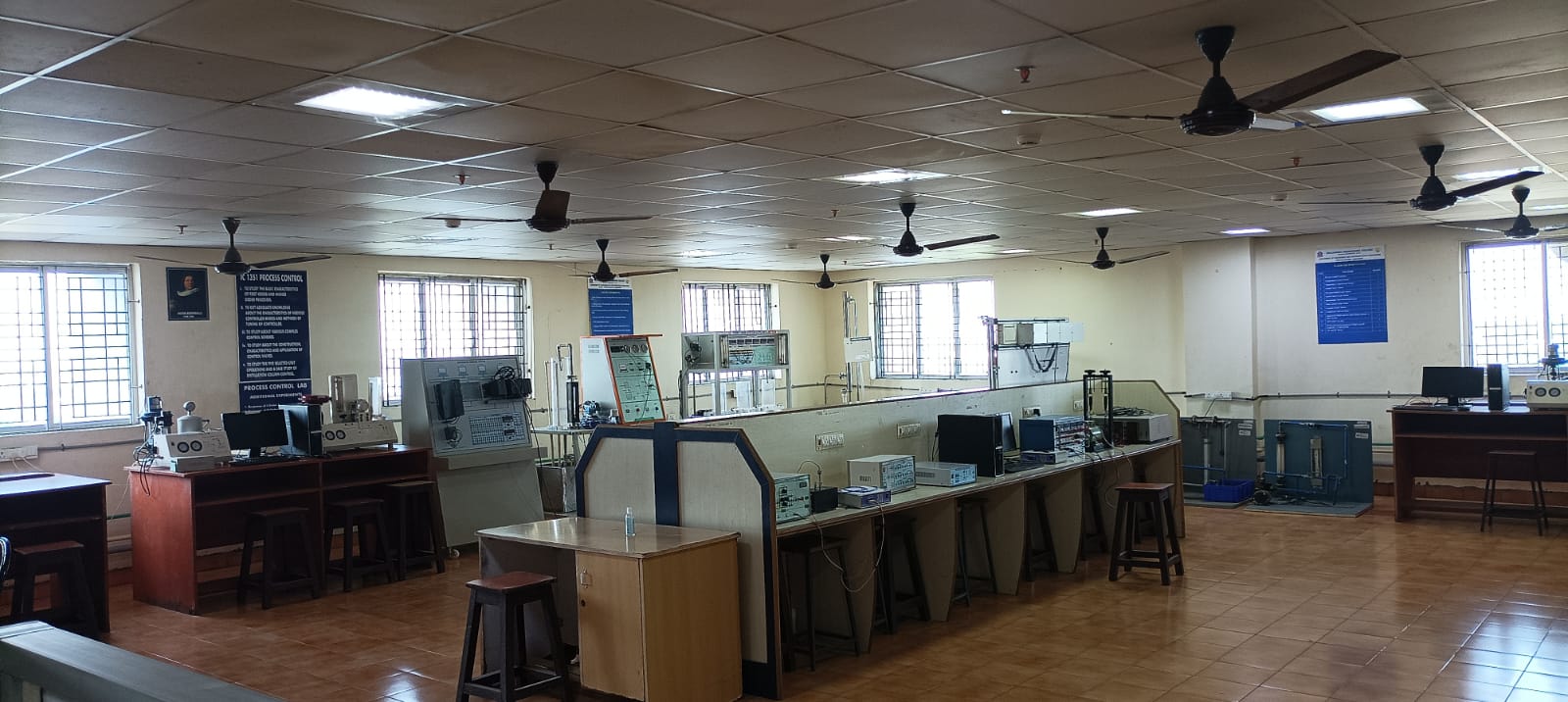
| S.No | Equipment | Qty |
|---|---|---|
| 1 | Process Control Simulator | 2 |
| 2 | Temperature Control System | 1 |
| 3 | Compressor With Air Dryer | 1 |
| 4 | Temperature Control loop Trainer | 1 |
| 5 | Control Value Characteristics | 1 |
| 6 | Pressure Control Loop Trainer | 1 |
| 7 | Level control Loop Trainer | 1 |
| 8 | Interacting Process & Non Interacting Process | 1 |
| 9 | Flow Control Loop Trainer | 1 |
| 10 | Strip Chart Recorder | 9 |
| 11 | Cascade Control Trainer | 1 |
| 12 | Analysis Of Multi Input & Multi Output System-4 Tank System | 1 |
| 13 | Study of pH Control Test Rig | 1 |
| 14 | Design and Implementation of Multi Loop PI controller-3 Tank System | 1 |
| 15 | Study of AC and DC Drives | 1 |
Transducer Laboratory
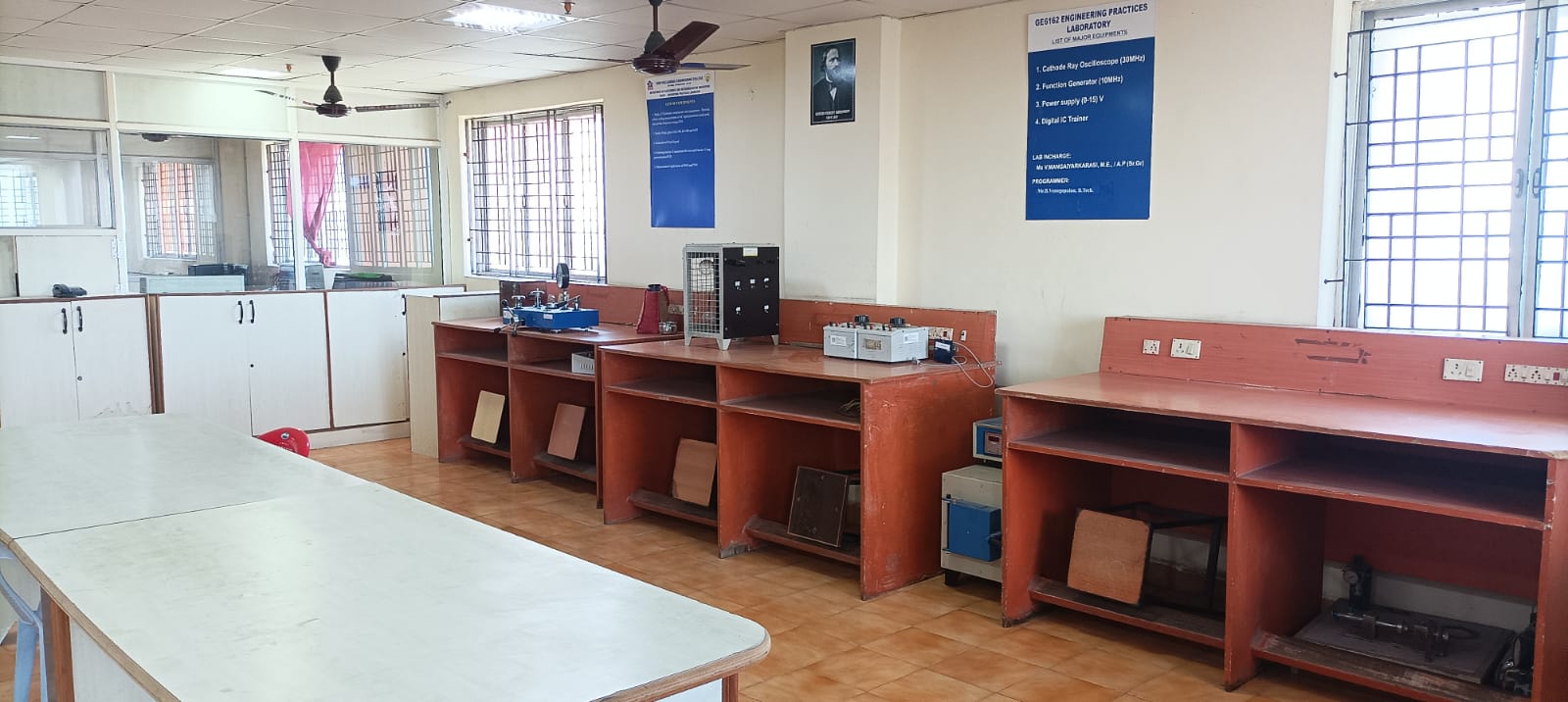
| S.No | Equipment | Qty |
|---|---|---|
| 1 | I/P and P/I Converter Trainer systems | 1 |
| 2 | Vibration Exciter | 1 |
| 3 | Angular Displacement Measurement Using Capacitive and Resistive Transducer | 1 |
| 4 | Piezo Electric Transducer Trainer | 1 |
Robotics Laboratory
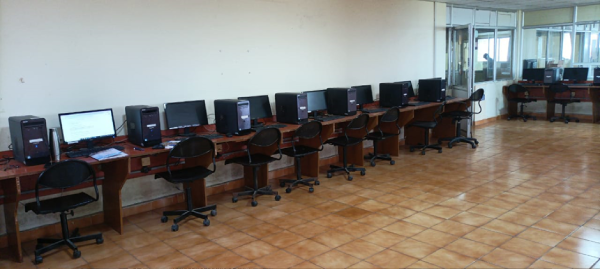
| S.No | Equipment | Qty |
|---|---|---|
| 1 | Computer | 13 |
| 2 | Autonomous Robotics Kit Box | 6 |
| 3 | Bread Board Robotics Kit Box | 6 |
Virtual Instrumentation Laboratory
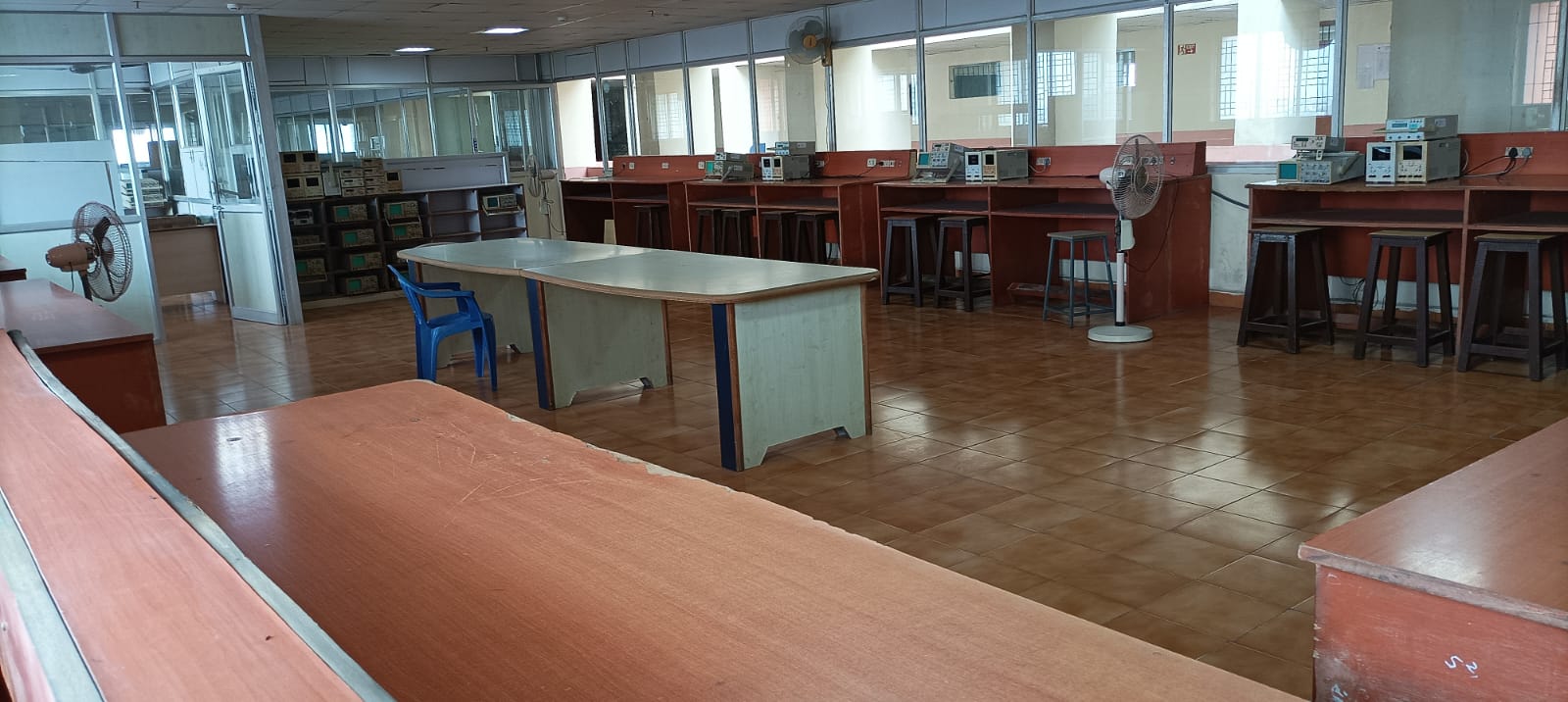
| S.No | Equipment | Qty |
|---|---|---|
| 1 | Computers | 34 |
| 2 | 2-Channel DAC Interface Card | 1 |
| 3 | VI-8 Channel ADC Interface Card | 1 |
| 4 | Lab View Software and Hardware Set | 1 |
Industrial Instrumentation Laboratory
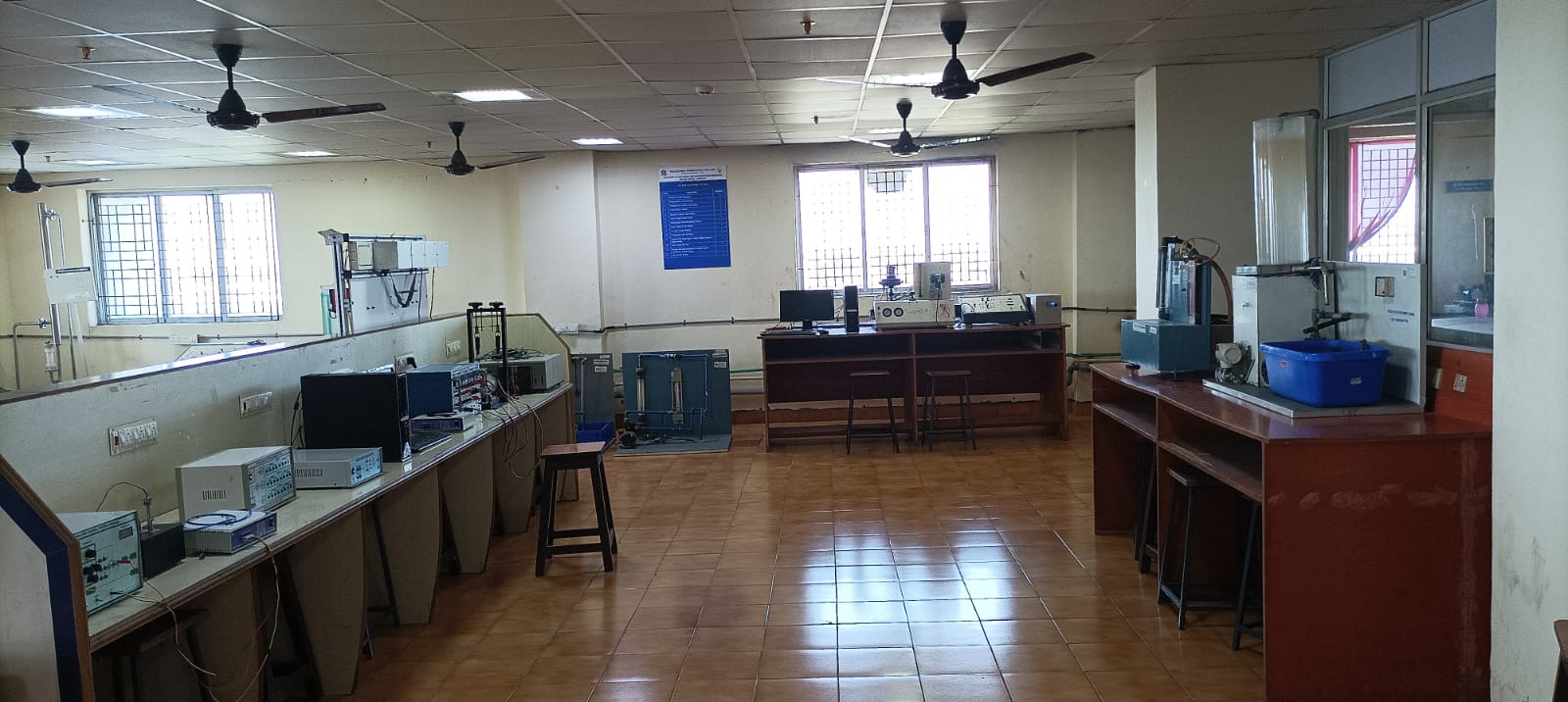
| S.No | Equipment | Qty |
|---|---|---|
| 1 | UV-VIS Spectrophotometer | 1 |
| 2 | ECG Analyzer with Pulse and Respiration signal | 1 |
| 3 | PH Measurement | 1 |
| 4 | Torque measurement trainer | 1 |
| 5 | Dead Weight Tester | 1 |
| 6 | Electromagnetic Flow Meter Trainer | 1 |
| 7 | Moisture Measurement Trainer | 1 |
| 8 | Vibration Measurement Trainer | 1 |
| 9 | Digital Conductivity Meter | 1 |
| 10 | Temperature Calibrator | 1 |
Modrobs
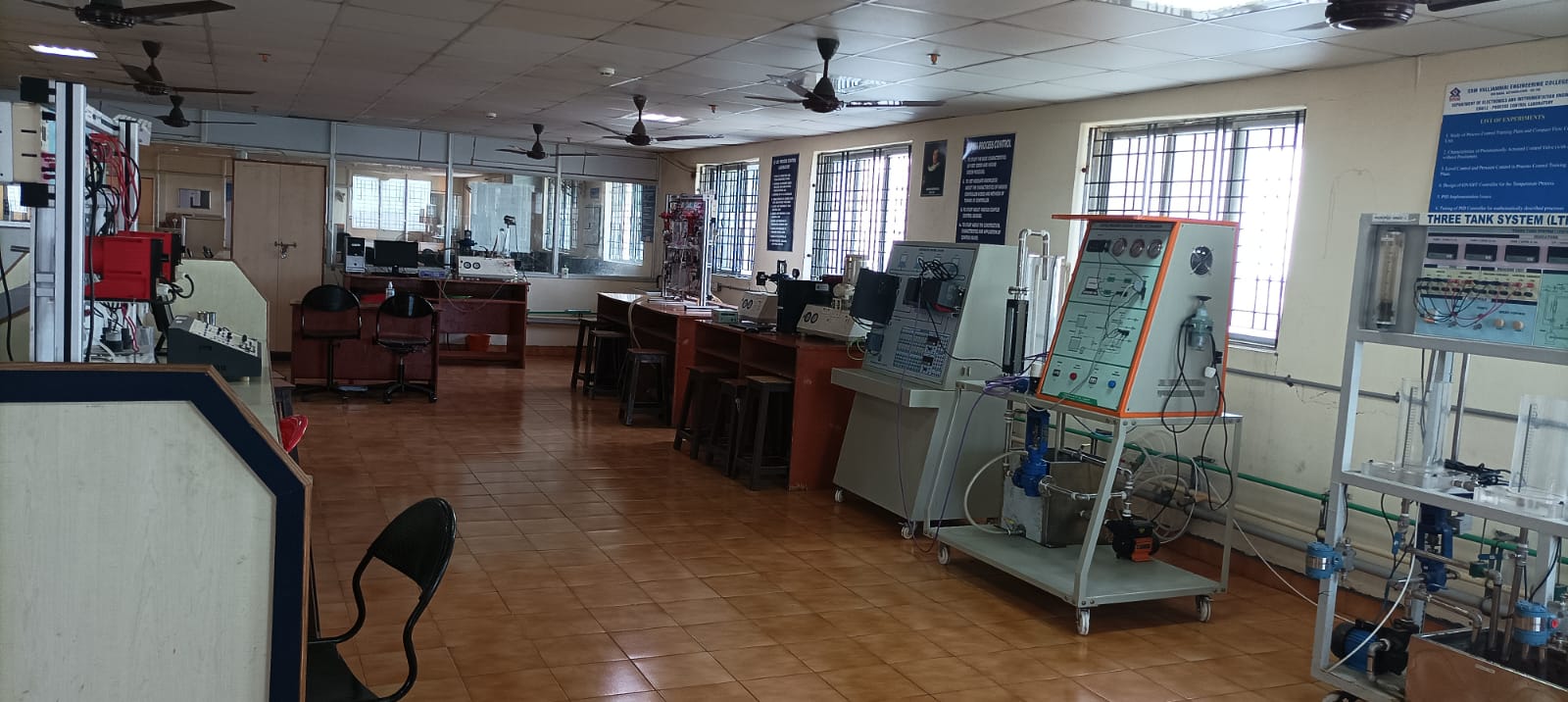
| S.No | Equipment | Qty |
|---|---|---|
| 1 | Field Bus And Distributed Control System(DCS) Workstation | 1 |
Research and Development Laboratory
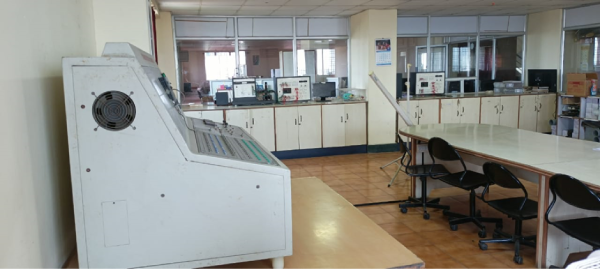
| S.No | Major Equipment | Qty |
|---|---|---|
| 1 | NI-Elvis Hardware | 1 |
| 2 | Qnetrotary Pendulum | 1 |
| 3 | VI Programmable Logic Controller Trainer | 1 |
| 4 | PLC Real time Application-Bottle Filling Level | 1 |
| 5 | Distributed Control System | 1 |
| 6 | NI-USB 6211 DAQ | 1 |
| 7 | 1. Calman plus software 2. Dry Block Temperature Calibrator 3. Multifunction Process Calibrator 4. Smart Pressure Calibrator |
1 |
Library
Department library have the good collection of text book for the area of electronics and instrumentation & Control and instrumentation to fulfill the need of the faculty and students and totally 358 books are there. It will be updated whenever the curriculum is revised. The details are furnished below.
Achievements
Placement
Academic Year: 2024-25
| S.No | Company/Recruiter | No. of Students Placed |
|---|---|---|
| 1 | Johnson controls | 1 |
| 2 | Elisar | 2 |
| 3 | Hexaware | 4 |
| 4 | Ohms tech engineers | 1 |
| 5 | Technologics | 1 |
| 6 | Agile robots | 1 |
| 7 | Sharda Motor Industries | 1 |
| 8 | Suba solutions | 1 |
| Total | 12 | |
Academic Year: 2022-23
| S.No | Company/Recruiter | No. of Students Placed |
|---|---|---|
| 1 | Accenture | 3 |
| 2 | Cognizant | 1 |
| 3 | Sutherland (Non-Voice) | 2 |
| Total | 6 | |
Academic Year: 2018-22
| S.No | Company/Recruiter | No. of Students Placed |
|---|---|---|
| 1 | HCL Technologies | 3 |
| 2 | Cognizant | 1 |
| 3 | TCS | 2 |
| 4 | Wipro | 2 |
| 5 | Accenture | 6 |
| Total | 14 | |
Academic Year: 2016-2020
| S.No | Placed Company | No. of Students Placed |
|---|---|---|
| 1 | CSS Corp* | 1 |
| 2 | Crystal HR & Security Solutions Pvt Ltd | 2 |
| 3 | Sutherland (Voice Process) | 8 |
| 4 | Innive | 2 |
| 5 | Worksbot | 1 |
| 6 | CTS | 1 |
| 7 | TCS* | 4 |
| 8 | Wipro | 2 |
| 9 | Accenture | 26 |
| Total | 47 | |
| 11 | CSS CORP | 2 |
Academic Year: 2015-19
| S.No | Placed Company | No. of Students Placed |
|---|---|---|
| 1 | Accenture | 40 |
| 2 | Wipro | 1 |
| 3 | CTS | 2 |
| 4 | TATA Motors | 1 |
| Total | 44 | |
Academic Year: 2012-16
| S.No | Placed Company | No. of Students Placed |
|---|---|---|
| 1 | CSS Corp | 3** |
| 2 | Jains Packaging & Soutions | 2 |
| 3 | NTT DATA | 1 |
| 4 | CTS | 1 |
| 5 | Sutherland Global Services Ltd(Non-Voice) | 4 |
| 6 | Sutherland Global Services Ltd | 2 |
| 7 | IGATE | 2* |
| 8 | TCS | 16 |
| 9 | Wipro | 8 |
| Total | 39 | |
Academic Year: 2023-2024
| S.No | Placed Company | No. of Students Placed |
|---|---|---|
| 1 | TCS | 3 |
| 2 | Conserve Solutions | 2 |
| 3 | TATA ELXSI | 1 |
| 4 | Milton Roy | 2 |
| Total | 8 | |
Academic Year:2017-2021
| S.No | Placed Company | No. of Students Placed |
|---|---|---|
| 1 | HCL | 3* |
| 2 | Infosys | 1 |
| 3 | Johnson Control India | 1 |
| 4 | Cognizant | 8** |
| 5 | Sutherland Non-Voice Process | 7* |
| 6 | TCS | 3 |
| 7 | Sutherland | 3 |
| 8 | Wipro | 2* |
| 9 | Accenture | 5 |
| Total | 23 | |
Academic Year: 2014-2018
| S.No | Placed Company | No. of Students Placed |
|---|---|---|
| 1 | Maveric Systems | 1 |
| 2 | Accenture | 19 |
| 3 | Sutherland- Voice Process | 5 |
| 4 | V Dart Software Services Pvt. Lld | 6** |
| 5 | Sai Technology Pvt. Ltd | 3** |
| 6 | Paragon Digital Services | 9* |
| 7 | Sutherland- Non-Voice Process | 9* |
| 7 | Paragon Digital Services | 1*** |
| 8 | Phoenix Medical Systems (P) Ltd | 1 |
| Total | 45 | |
Academic Year: 2013-2017
| S.No | Placed Company | No. of Students Placed |
|---|---|---|
| 1 | Tech Mahindra | 2** |
| 2 | Sutherland Global Services(Voice Process) | 3* |
| 3 | Sutherland Global Services | 4 |
| 4 | Capgemini | 7 |
| 5 | Accenture | 42 |
| 6 | Wipro | 2 |
| Total | 60 | |
Contacts
Dr. K. Ayyar
Professor & Head,
Dept. of Electronics & Instrumentation Engineering,
SRM Valliammai Engineering College,
SRM Nagar, Kattankulathur – 603 203,
Kancheepuram District,
Tamil Nadu, India.
:MOBILE: +91 – 94434 74242
TEL: 044 – 27454784 / 726, EXTN : 8181
FAX: 044 – 2745 1504.
EMAIL: hod.eie@srmvalliammai.ac.in


